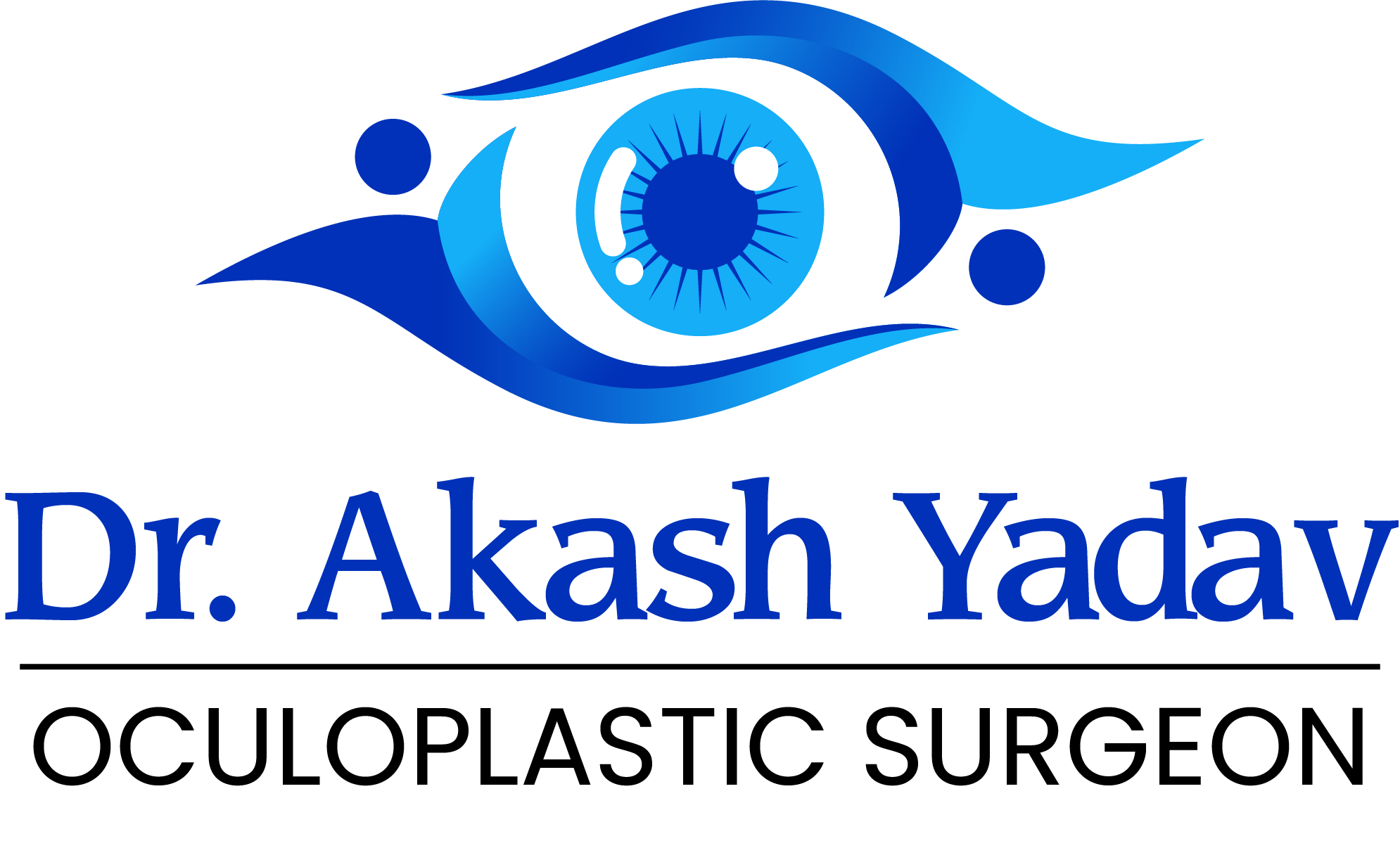
Oculoplasty Surgery in Pune By Dr. Akash Yadav
Oculoplasty surgery, also known as ophthalmic plastic surgery or eye plastic and reconstructive surgery, is a specialized field of ophthalmology that focuses on reconstructing, restoring, and enhancing the function and appearance of the eyes and surrounding structures, including the eyelids, orbit, and tear ducts. Oculoplasty addresses medically necessary issues, such as ptosis, eyelid tumors as well as cosmetic concerns. The goal is to improve vision, comfort, and aesthetics. Dr. Akash Yadav is a leading eye specialist offering advanced oculoplasty Surgery in Pune tailored to your needs.
Conditions Treated by Oculoplasty:
- Eyelid Malpositions: Ptosis (drooping eyelids), entropion (eyelids turning inward), and ectropion (eyelids turning outward).
- Tear Drainage Problems: Such as blocked tear ducts.
- Orbit Problems: Conditions affecting the eye socket, including tumors and trauma.
- Skin Cancers of the Eyelid: Surgical removal and reconstruction.
- Eyebrow and Forehead Issues: Including lifts and rejuvenation.
- Congenital Defects and Eye Disorders in Children: Pediatric Oculoplasty surgery.
Types of Oculoplasty Procedures:
- Oculoplasty encompasses a wide range of procedures, including:
- Eyelid Surgery: Such as blepharoplasty for cosmetic enhancement and reconstruction for ptosis, entropion, and ectropion.
- Tear Duct Surgery: To address tear drainage issues.
- Orbital Surgery: For tumors, trauma, and conditions like thyroid eye disease.
What Do Oculoplastic Surgeons Do?
Oculoplastic surgeons are eye surgeons with additional training in plastic and reconstructive procedures around the eyes. They treat conditions such as:
- Droopy eyelids (ptosis) – Improves vision and appearance.
- Eyelid malpositions – Corrects inward (entropion) or outward (ectropion) turning eyelids.
- Eyelid tumors & skin cancers – Removes growths and reconstructs the eyelid.
- Tear duct (lacrimal) problems – Fixes blocked tear ducts causing excessive tearing or infections.
- Thyroid eye disease (Graves’ disease) – Reduces eye bulging and swelling.
- Facial aging (eyelid bags, wrinkles) – Performs cosmetic procedures like blepharoplasty.
- Trauma & fractures around the eye – Repairs injuries to the eye socket or eyelids.
Common Oculoplasty Procedures
A. Cosmetic Procedures
- Blepharoplasty (Eyelid Lift)
– Removes excess skin, fat, or muscle from upper/lower eyelids to reduce puffiness and sagging.
– Can make a person look more youthful and refreshed. - Brow Lift
– Elevates sagging eyebrows that may cause a tired appearance. - Fillers & Botox
– Reduces wrinkles (crow’s feet, forehead lines) and restores volume around the eyes.
B. Reconstructive & Medical Procedures
- Ptosis Repair – Lifts droopy eyelids obstructing vision.
- Ectropion/Entropion Repair – Corrects eyelids that turn outward (causing dryness) or inward (scratching the eye).
- Tear Duct Surgery (DCR – Dacryocystorhinostomy) – Opens blocked tear ducts to prevent chronic tearing and infections.
- Orbital Decompression – Treats thyroid eye disease by creating more space for bulging eyes.
- Eyelid Tumor Removal & Reconstruction – Removes cancerous or benign growths and rebuilds the eyelid.
Who Needs Oculoplasty Surgery?
You may benefit from Oculoplasty surgery if you have:
– Functional problems (drooping eyelids blocking vision, eyelids turning inward/outward).
– Excessive tearing or eye infections due to blocked tear ducts.
– Bulging eyes from thyroid disease.
– Eyelid tumors or skin cancers.
– Cosmetic concerns (under-eye bags, sagging eyelids, wrinkles).
What to Expect Before, During, and After Surgery
Before Surgery
– Consultation with an oculoplastic surgeon to discuss goals and risks.
– Medical evaluation (eye exam, imaging if needed).
During Surgery
– Most procedures are outpatient (no overnight stay).
– Local or general anesthesia is used.
– Minimally invasive techniques (small incisions, hidden scars).
After Surgery
– Mild swelling and bruising for 1-2 weeks.
– Cold compresses and ointments help healing.
– Avoid strenuous activities for a few weeks.
– Final results visible in weeks to months.
Risks & Complications
While oculoplasty surgery is generally safe, possible risks include:
- Temporary dryness or irritation.
- Scarring (usually minimal and hidden).
- Rarely, asymmetry or need for revision.
Cases Operated by Dr. Akash Yadav
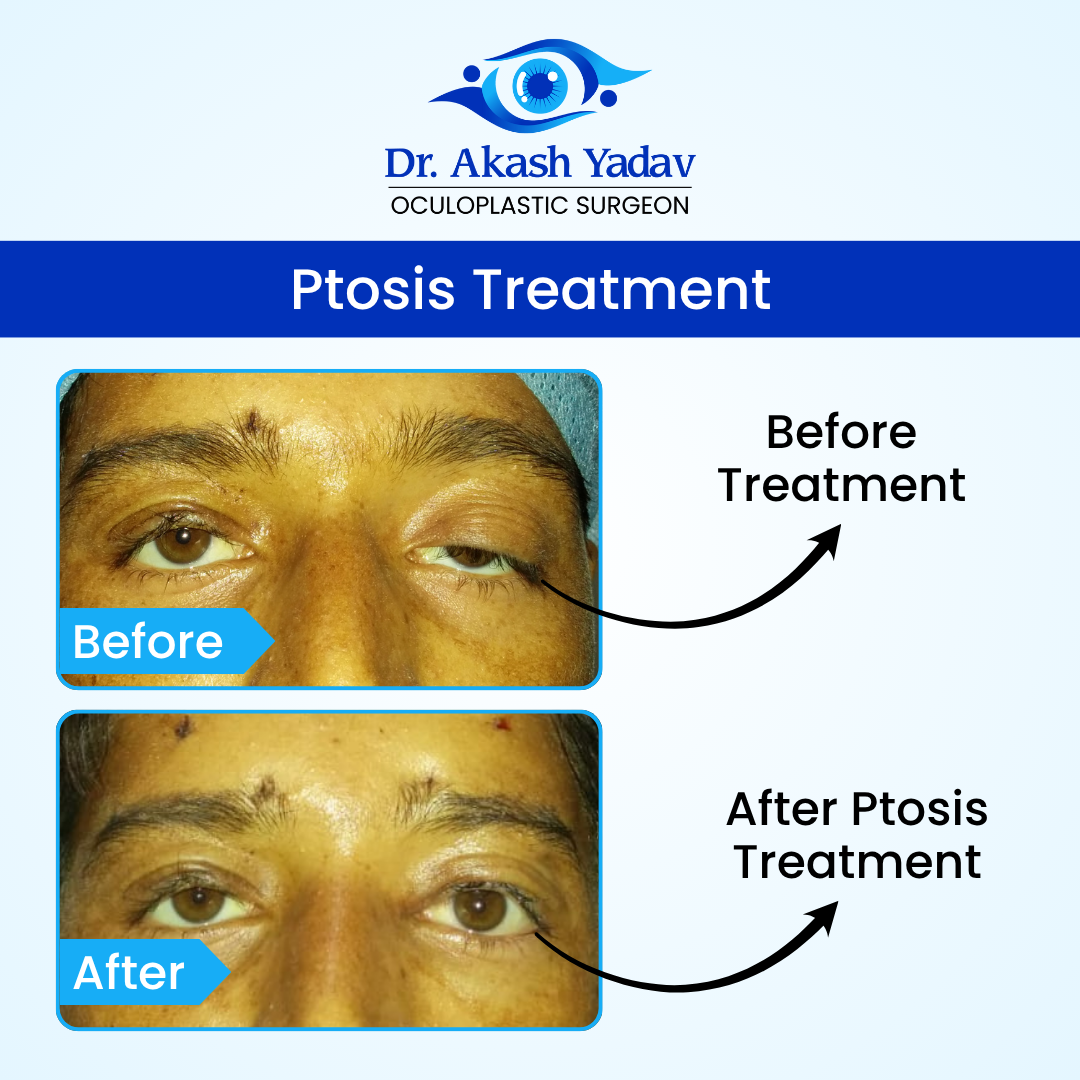
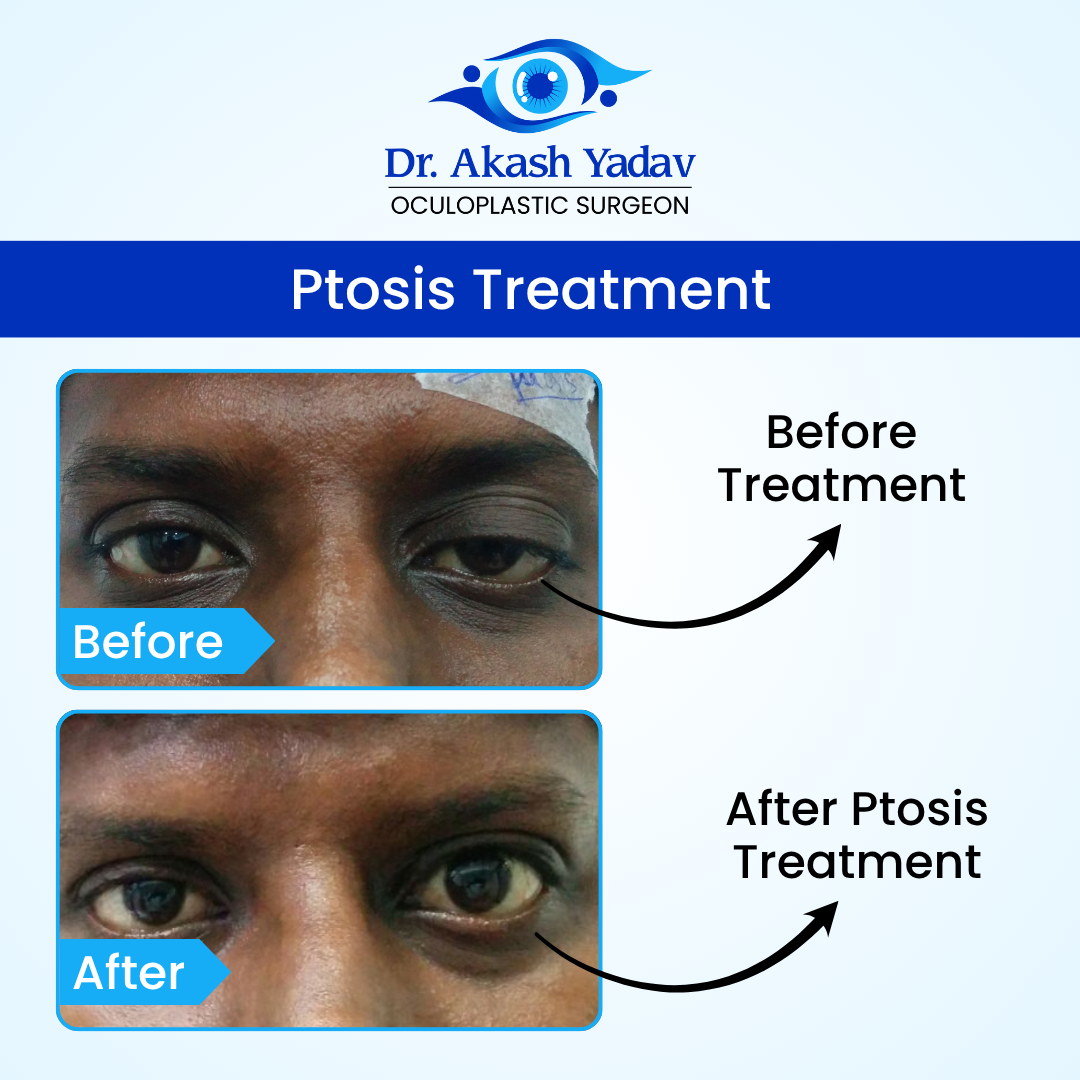
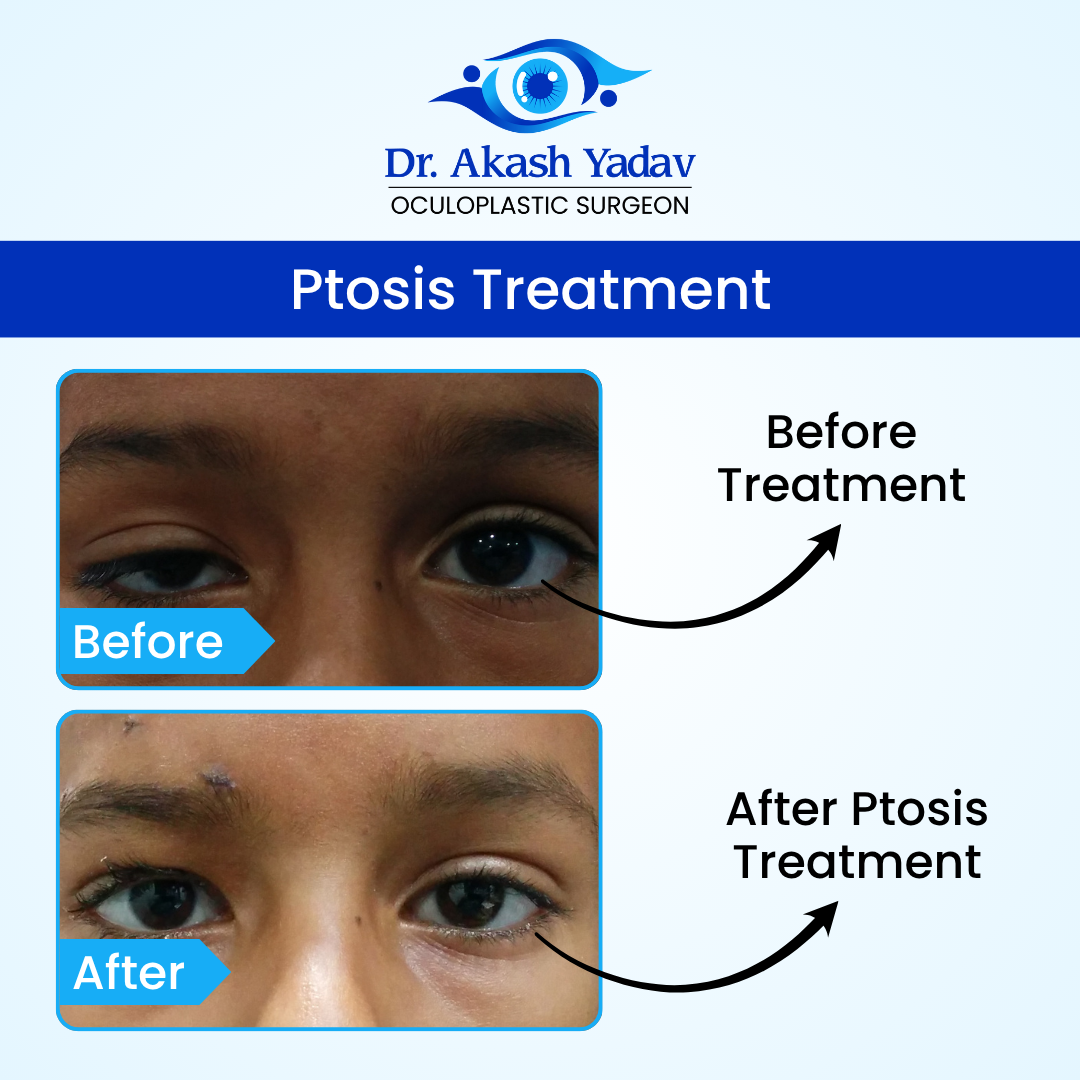
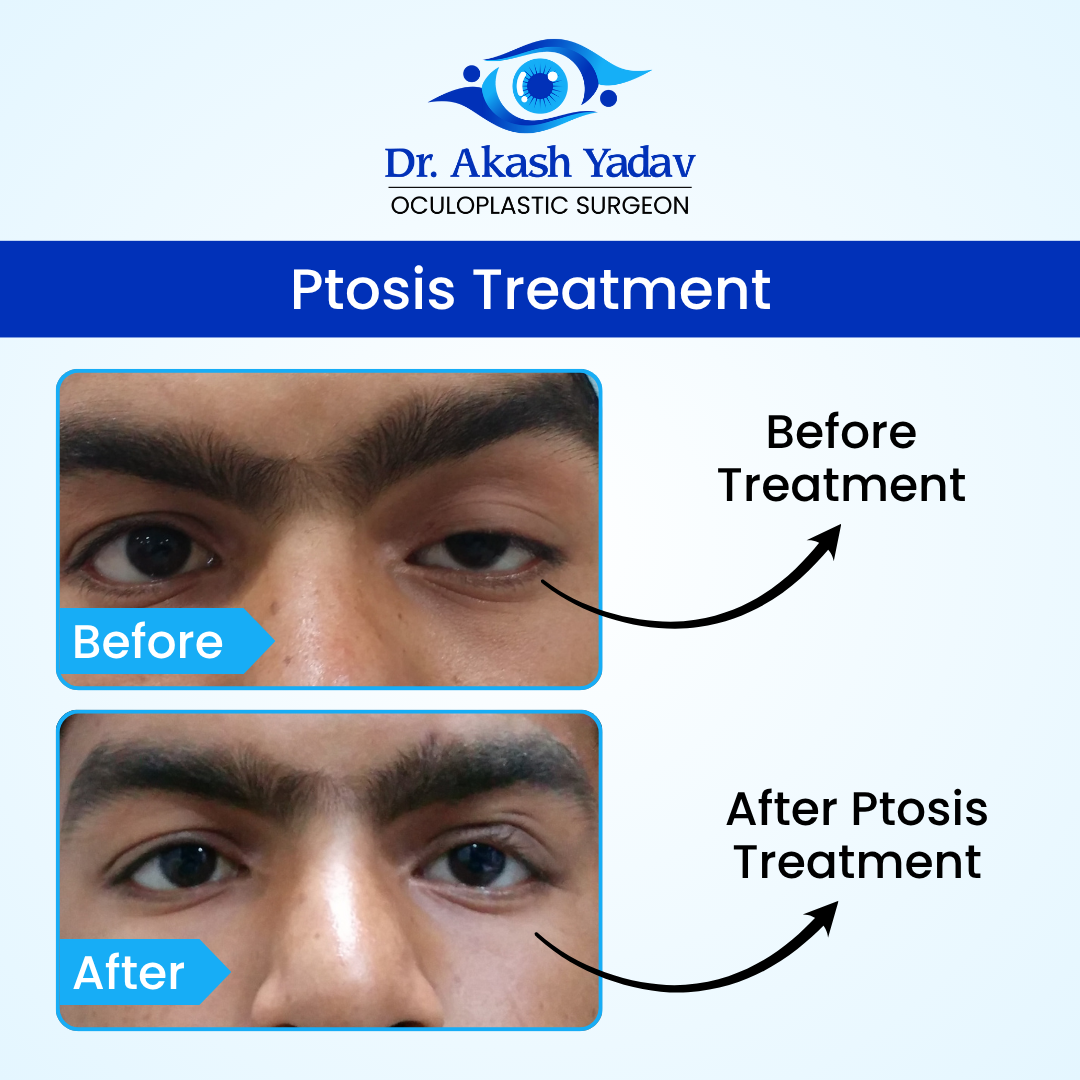
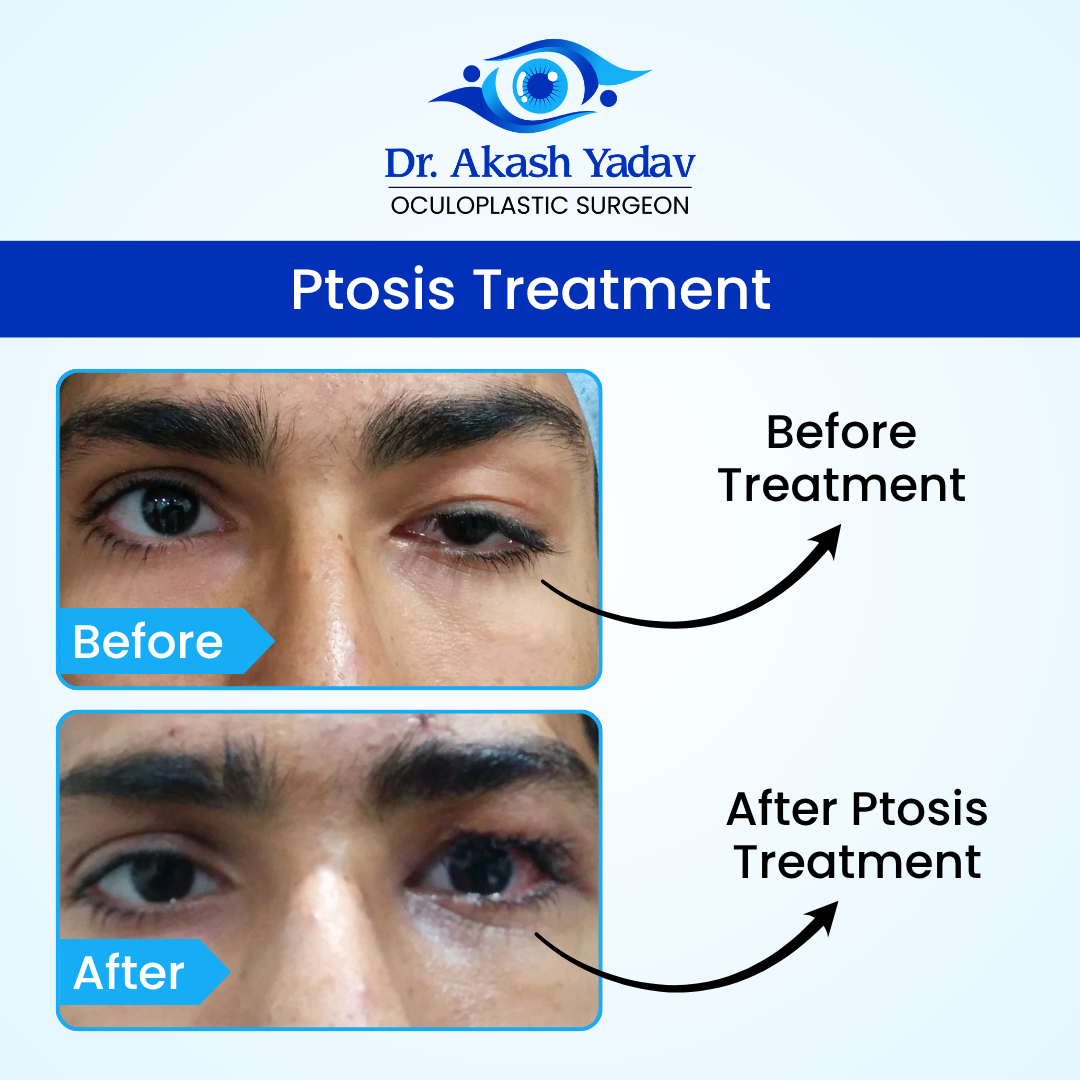
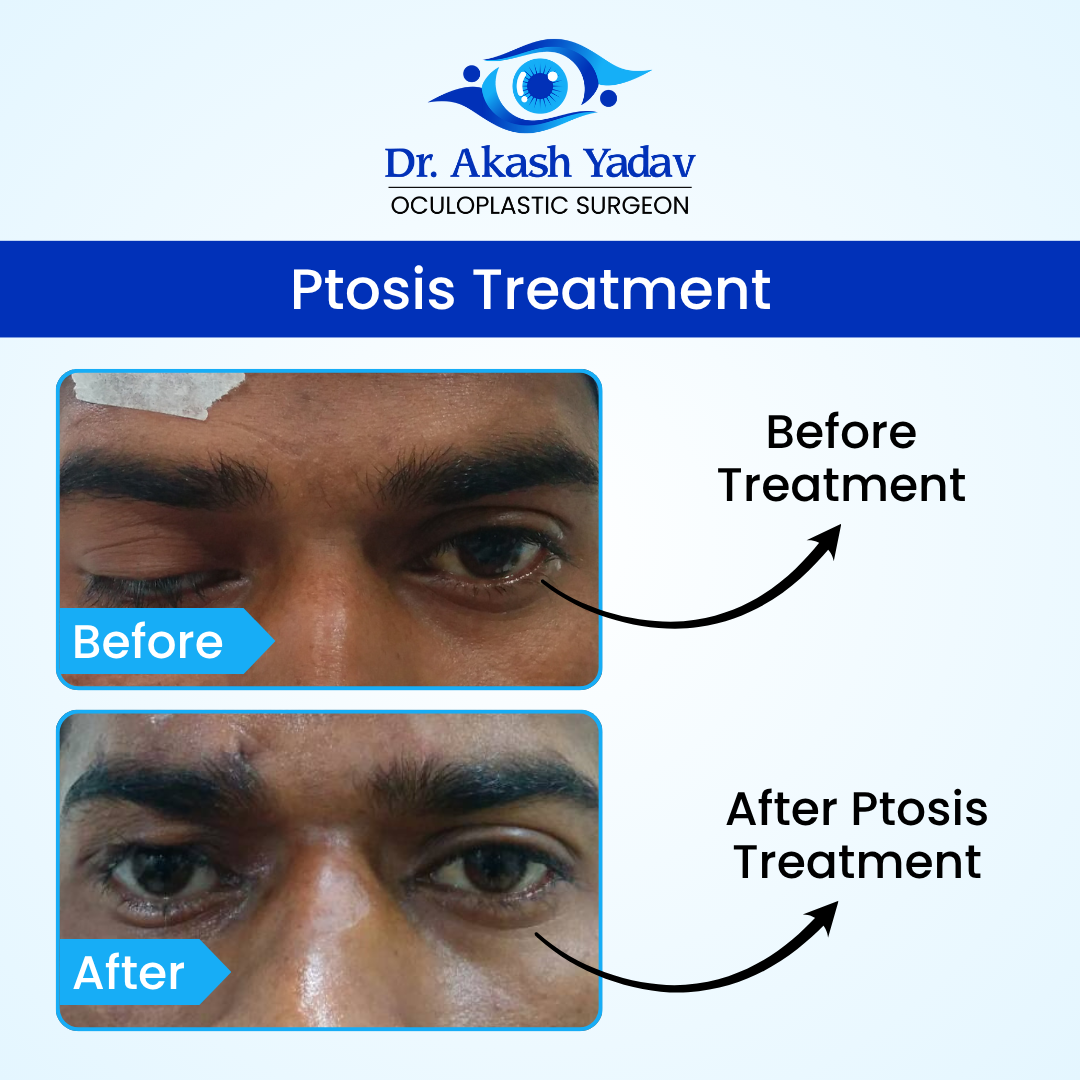
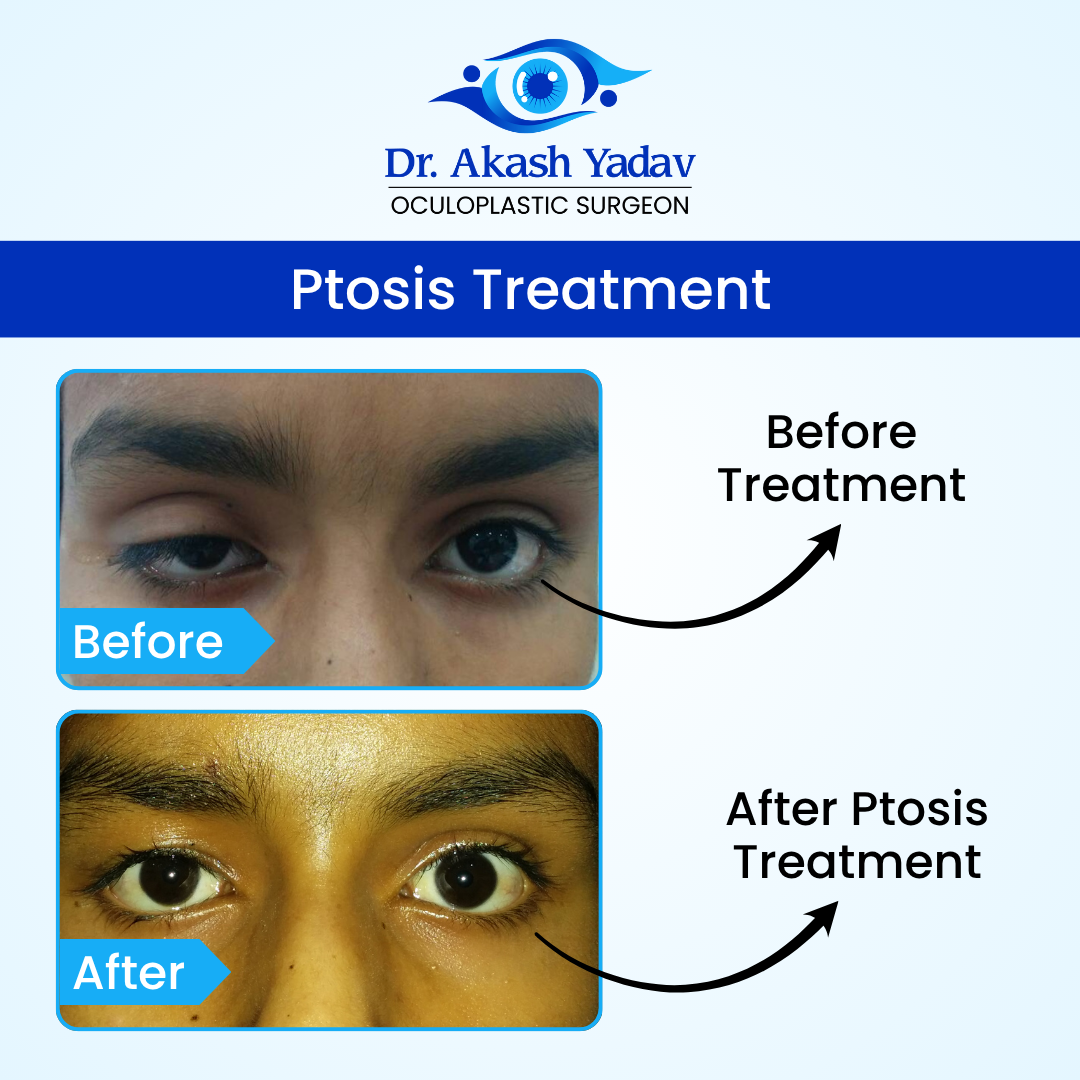
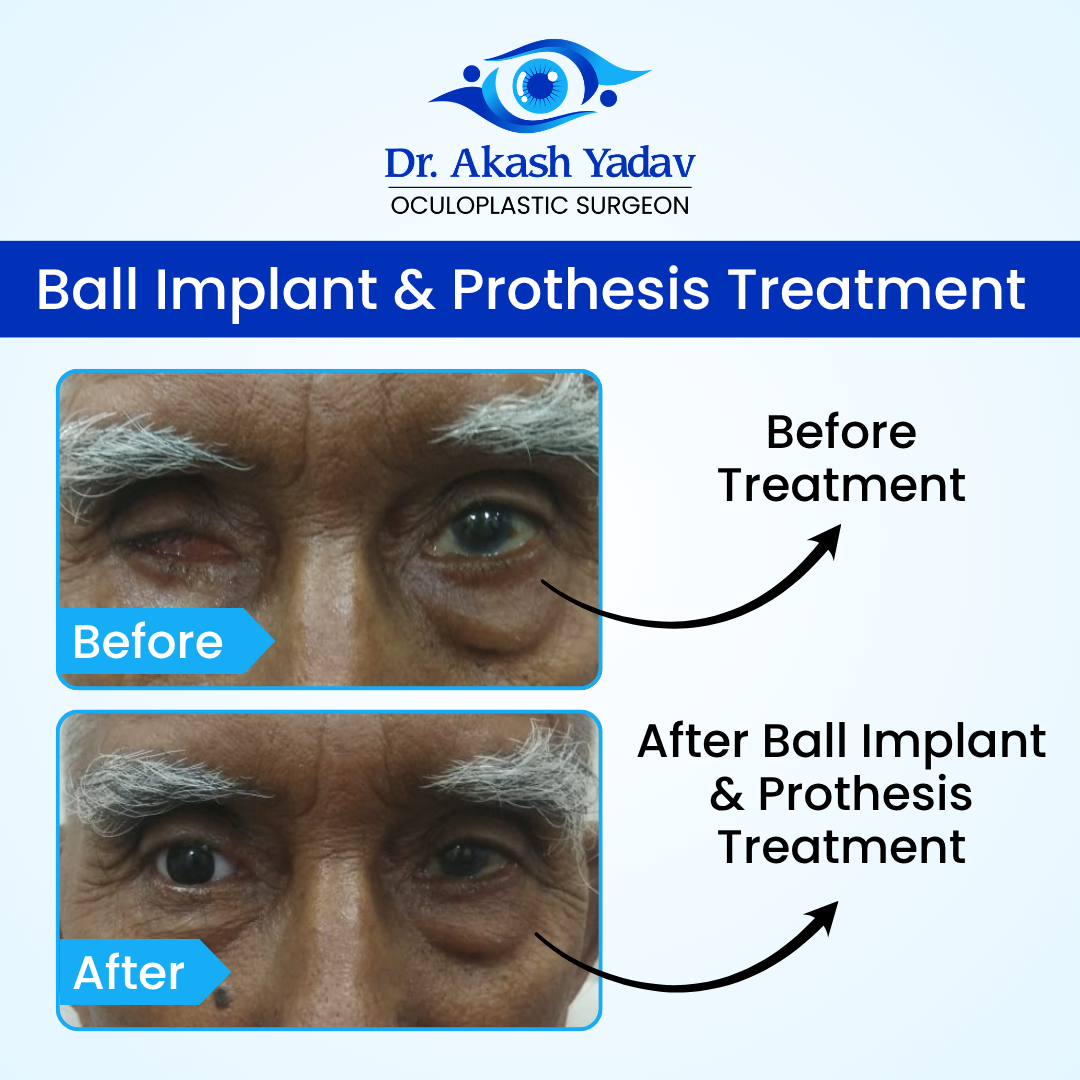
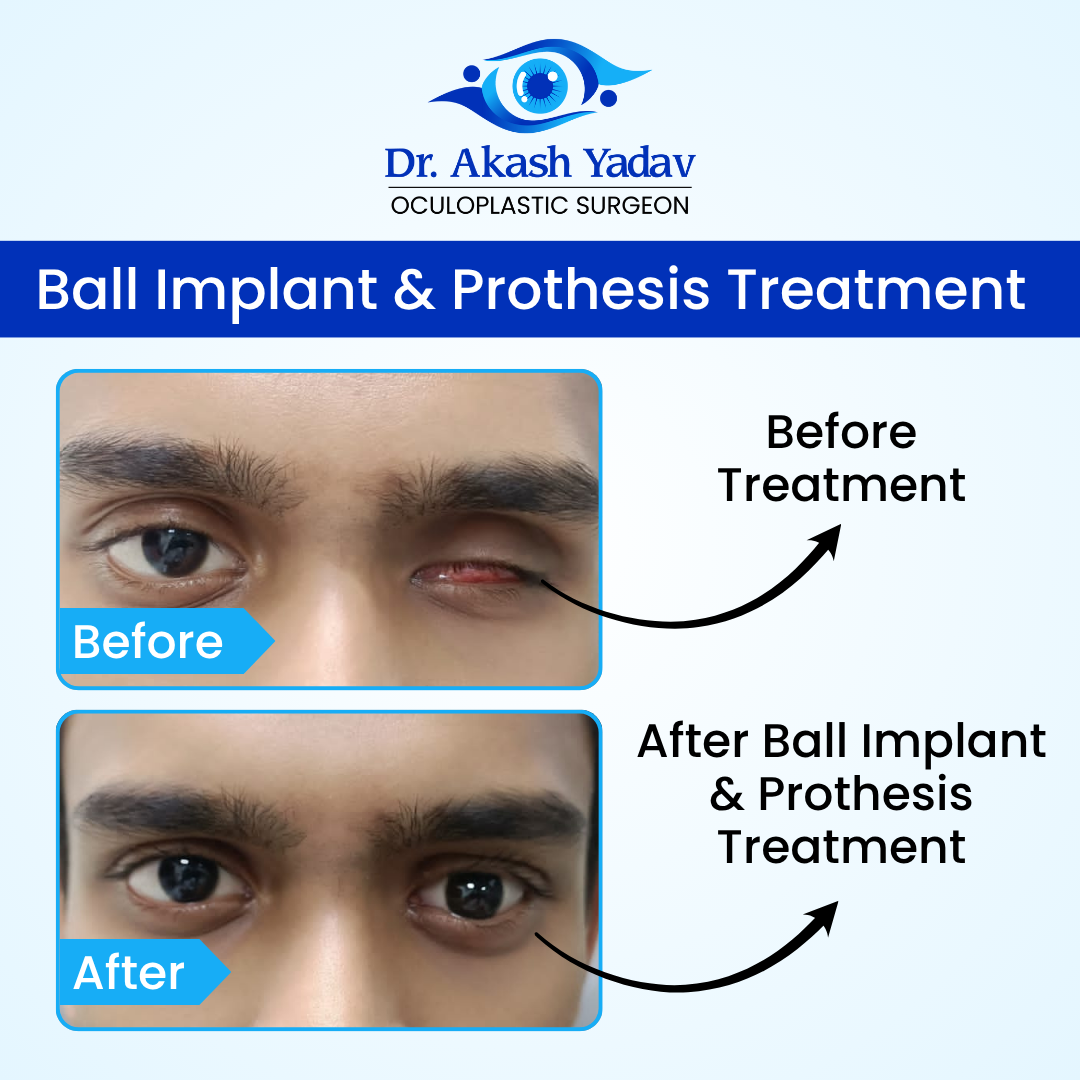
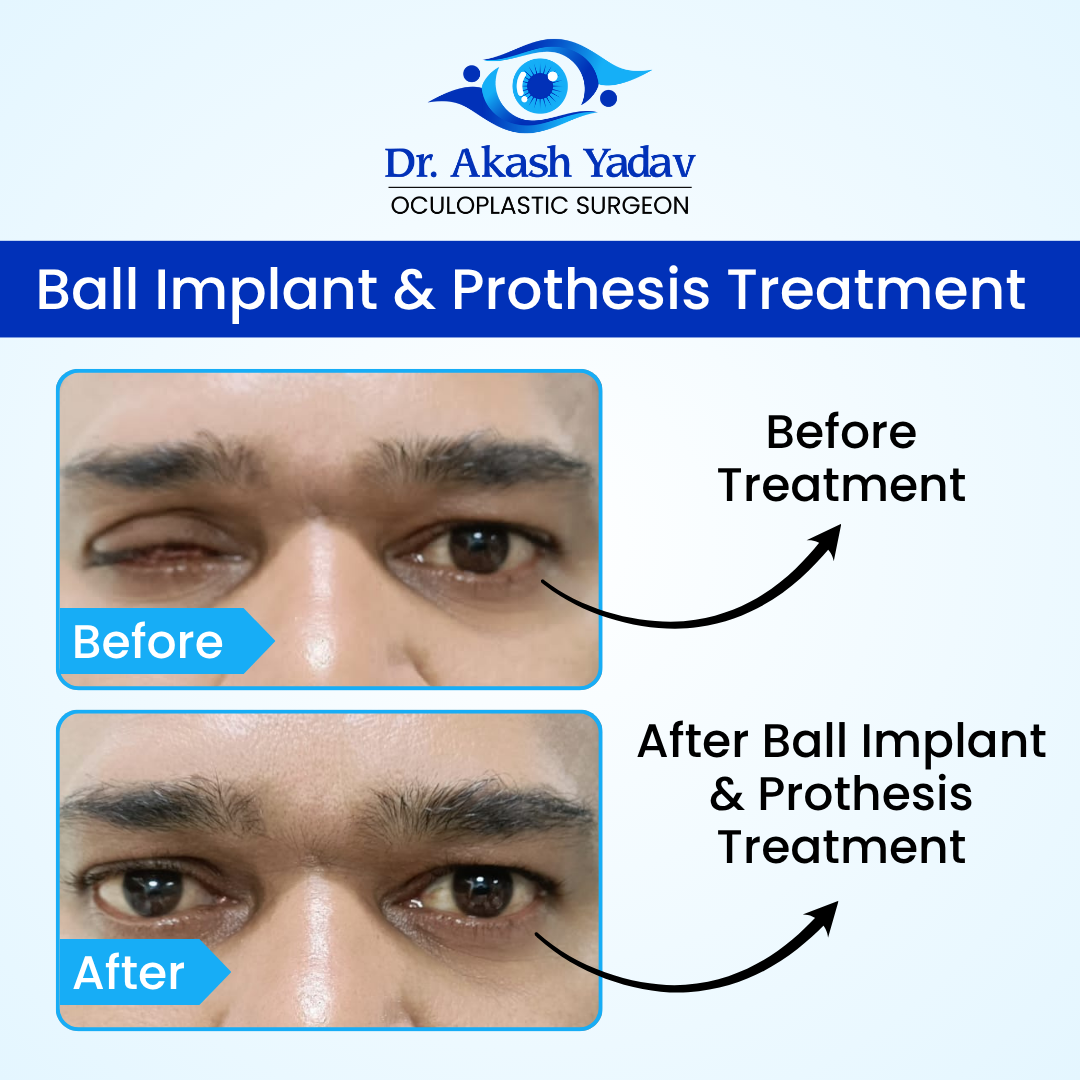
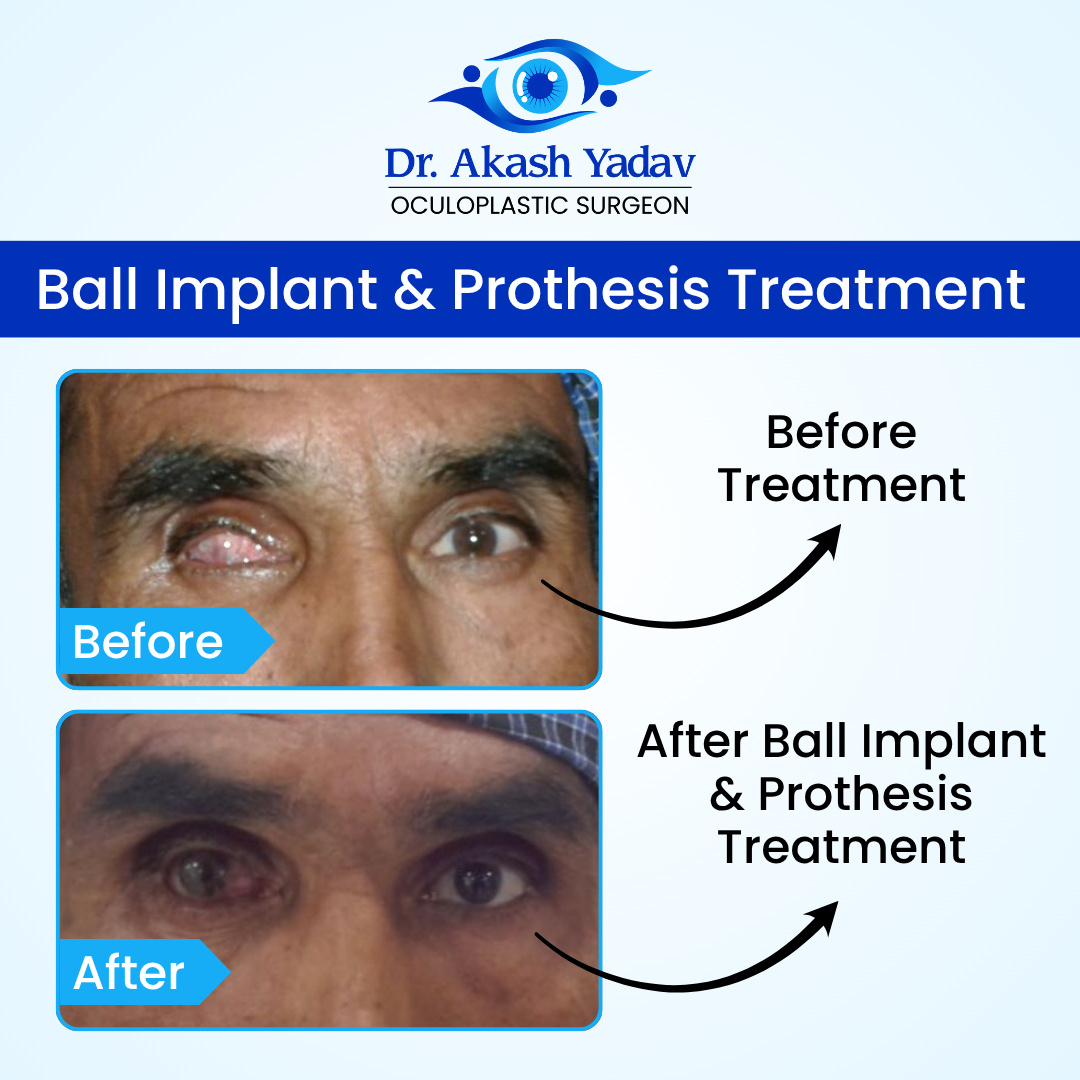
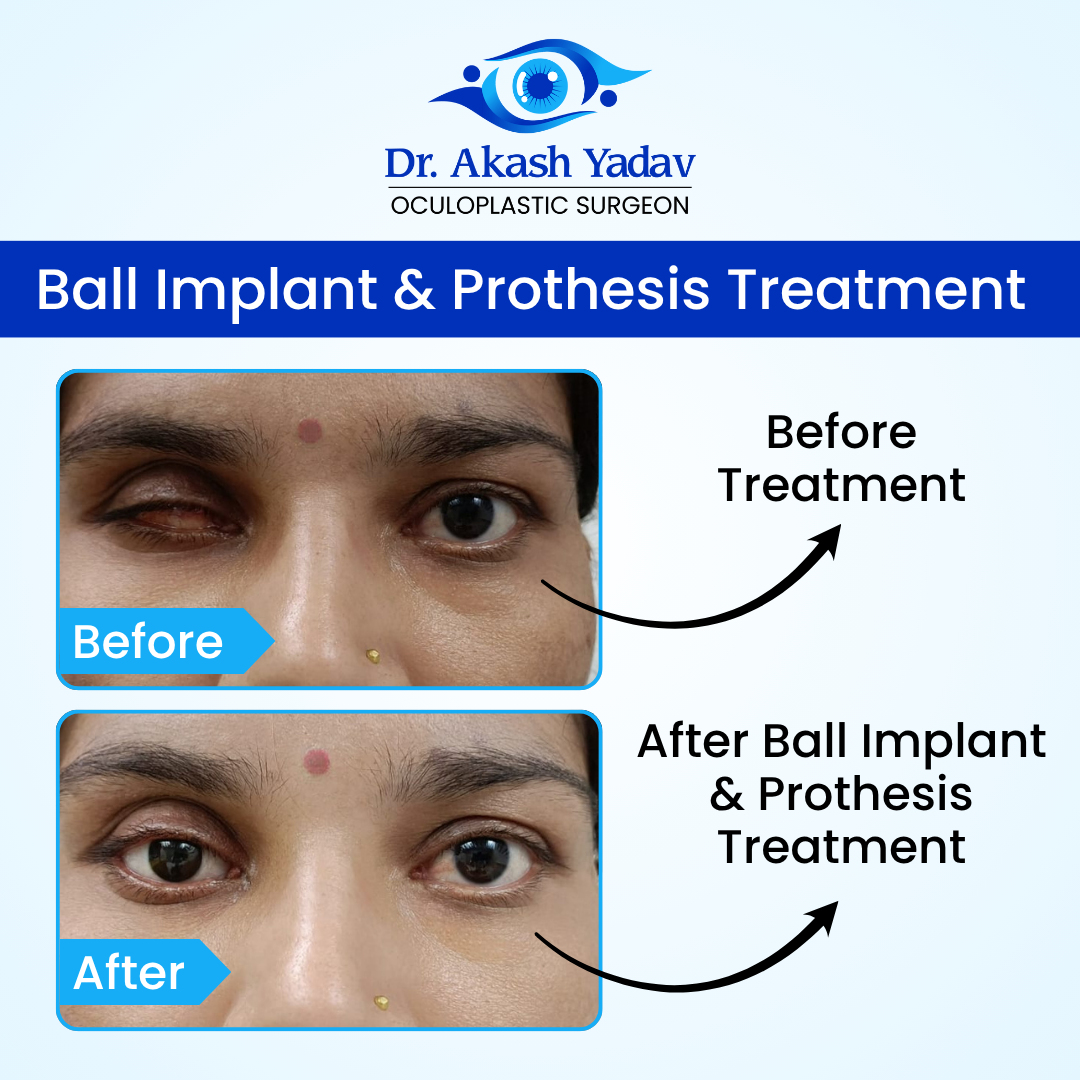
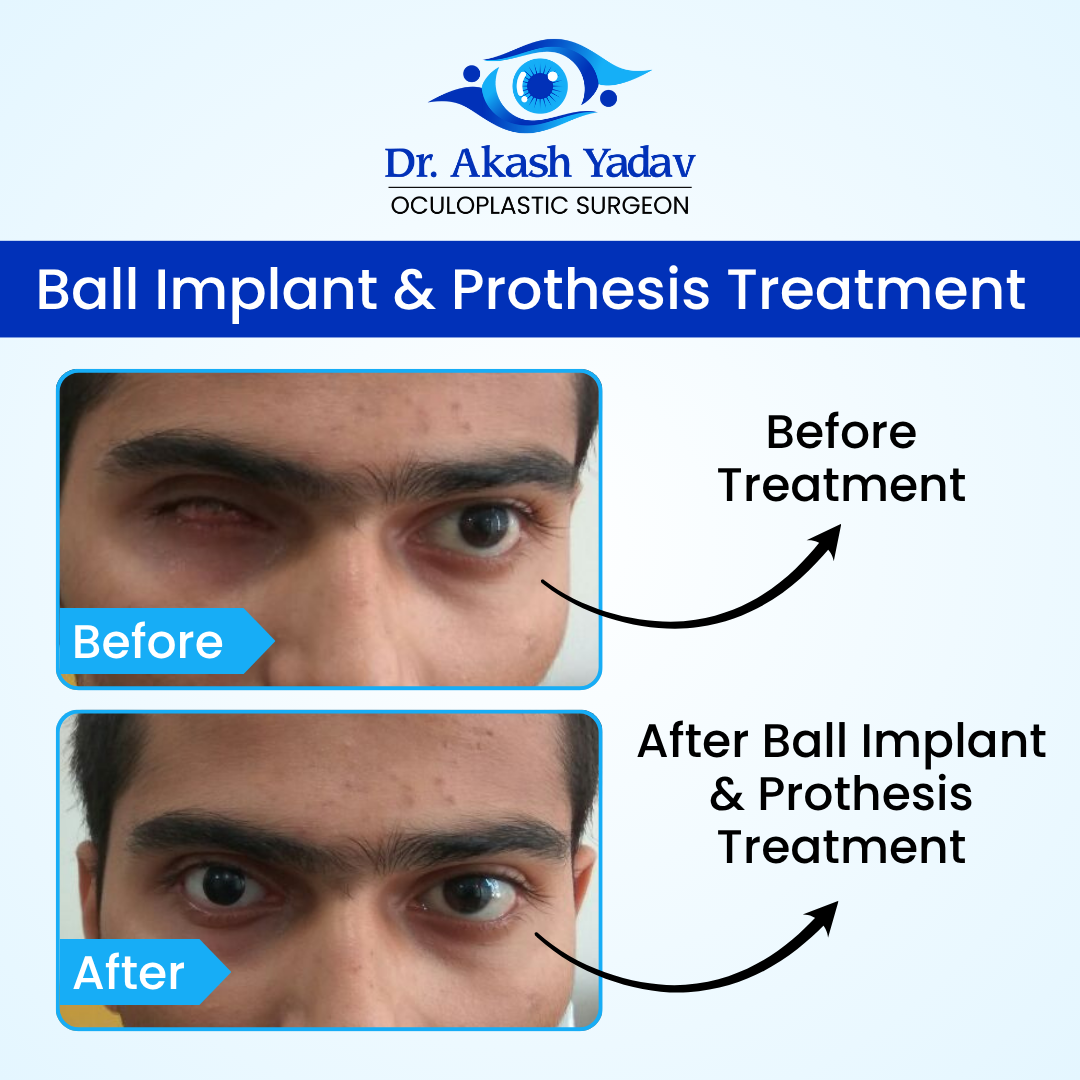
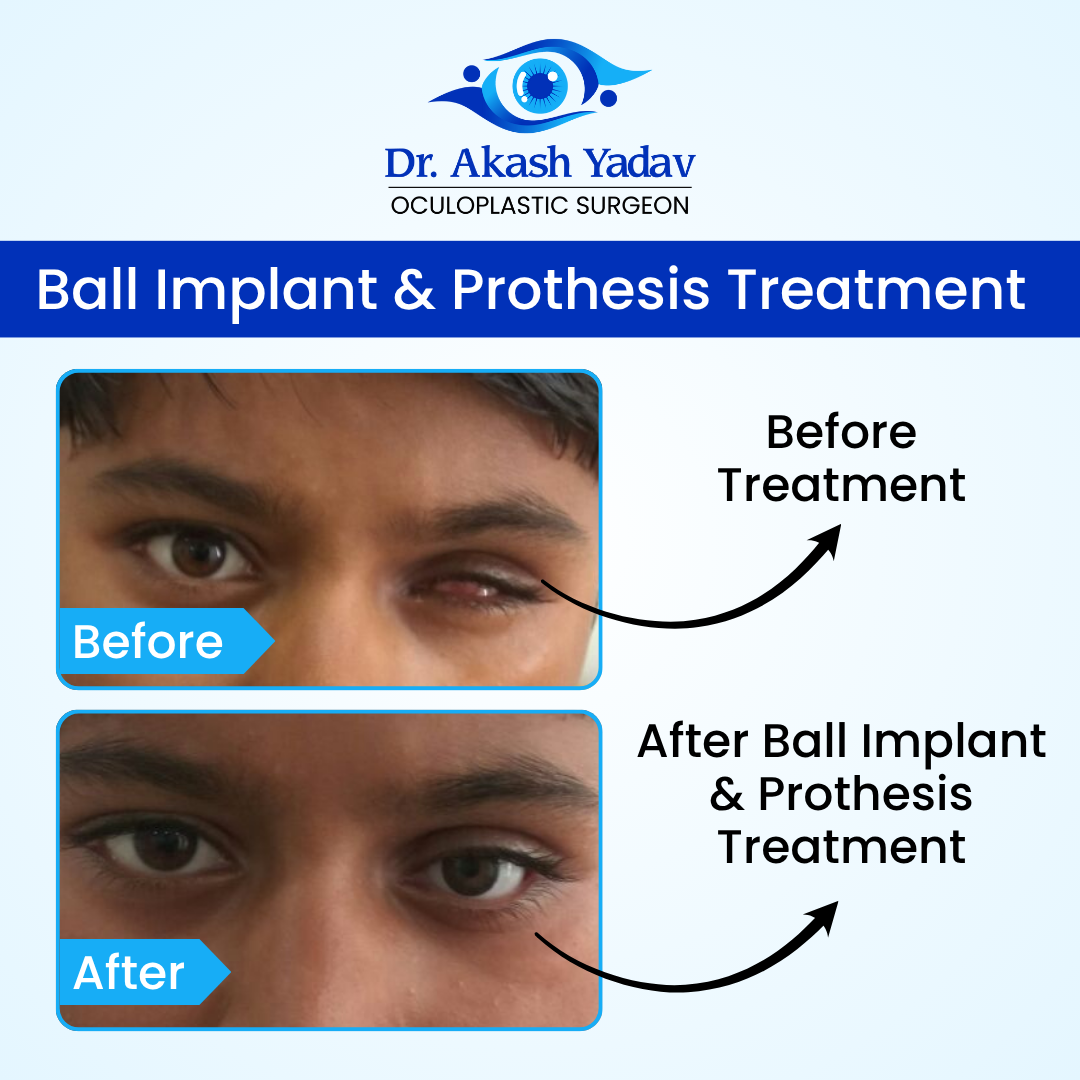
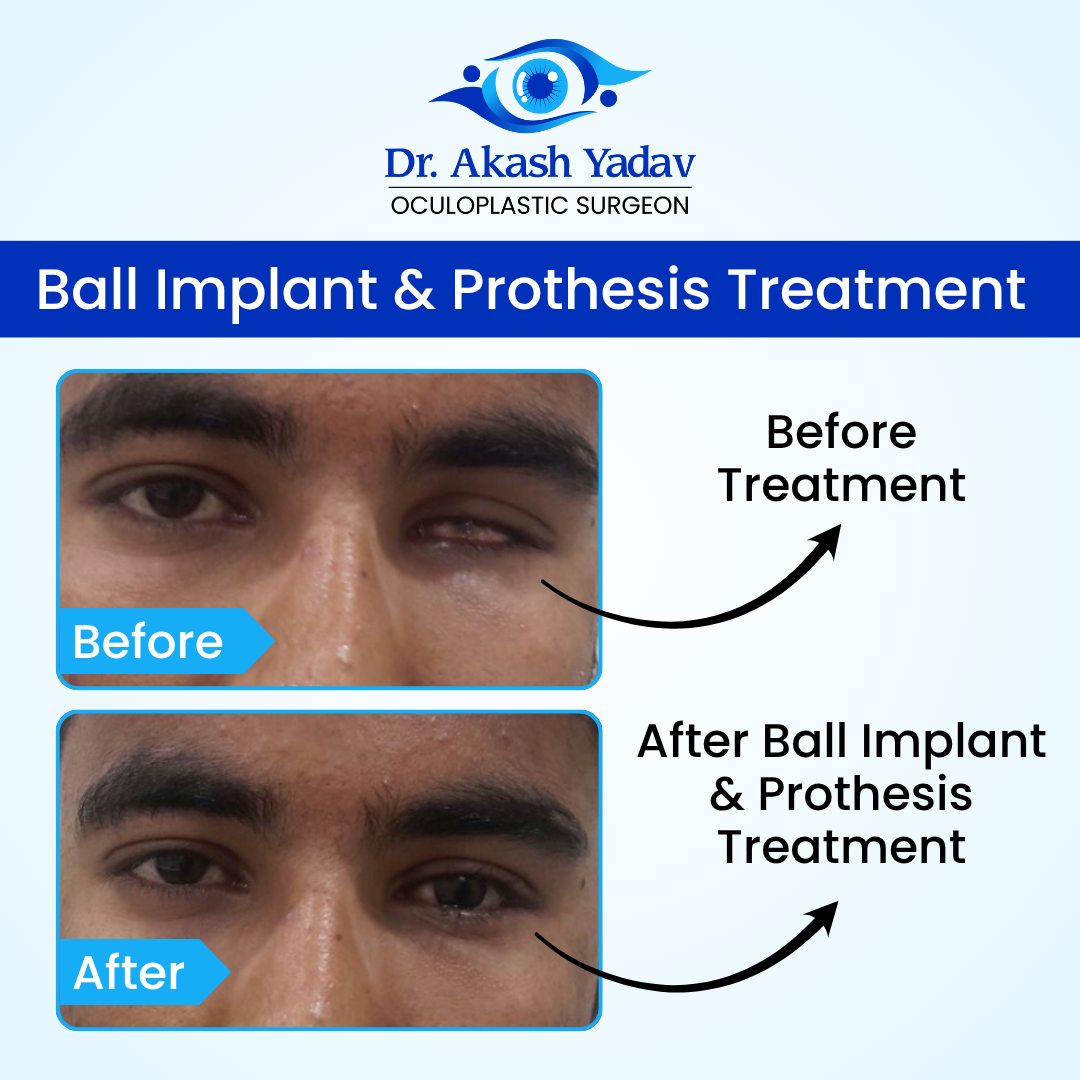
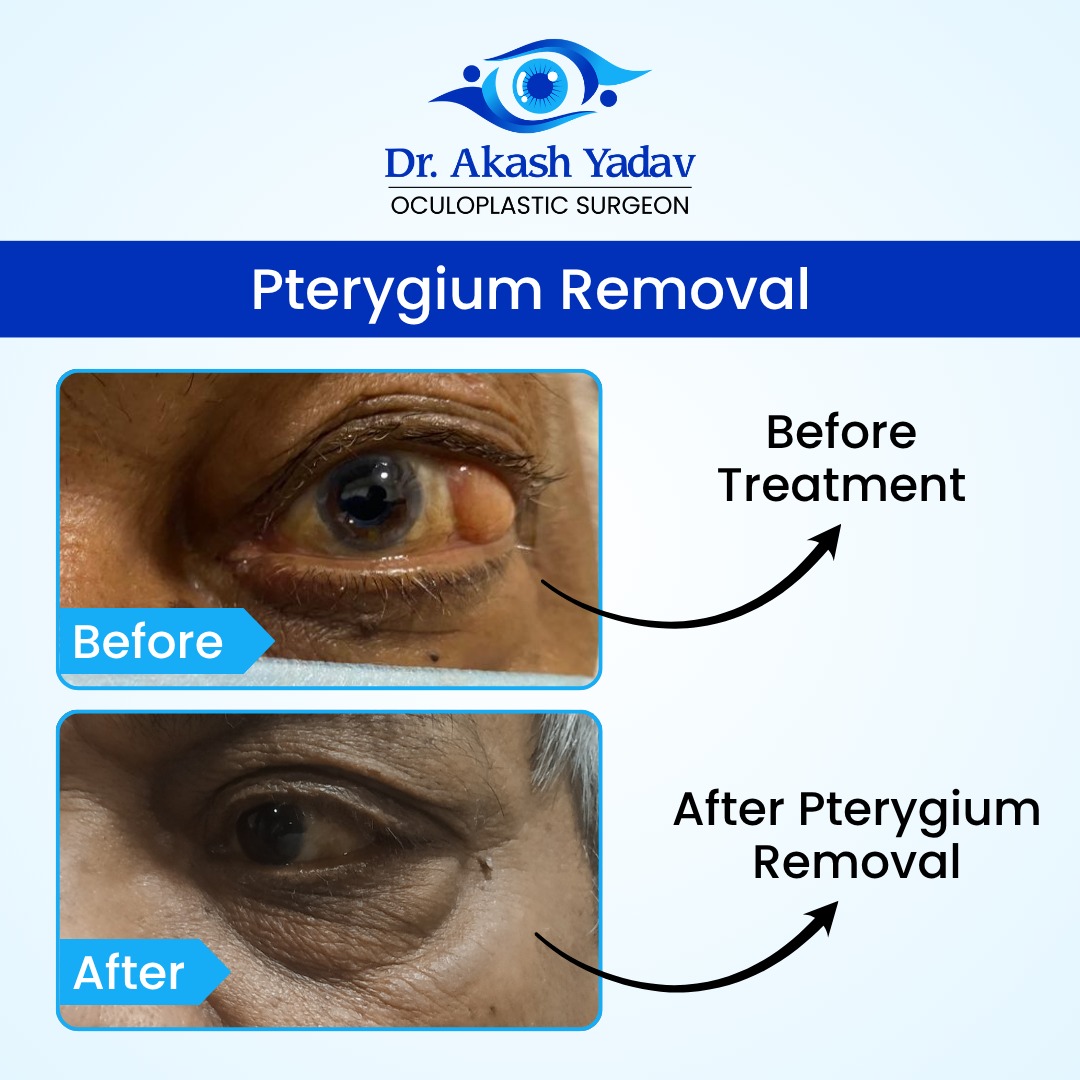
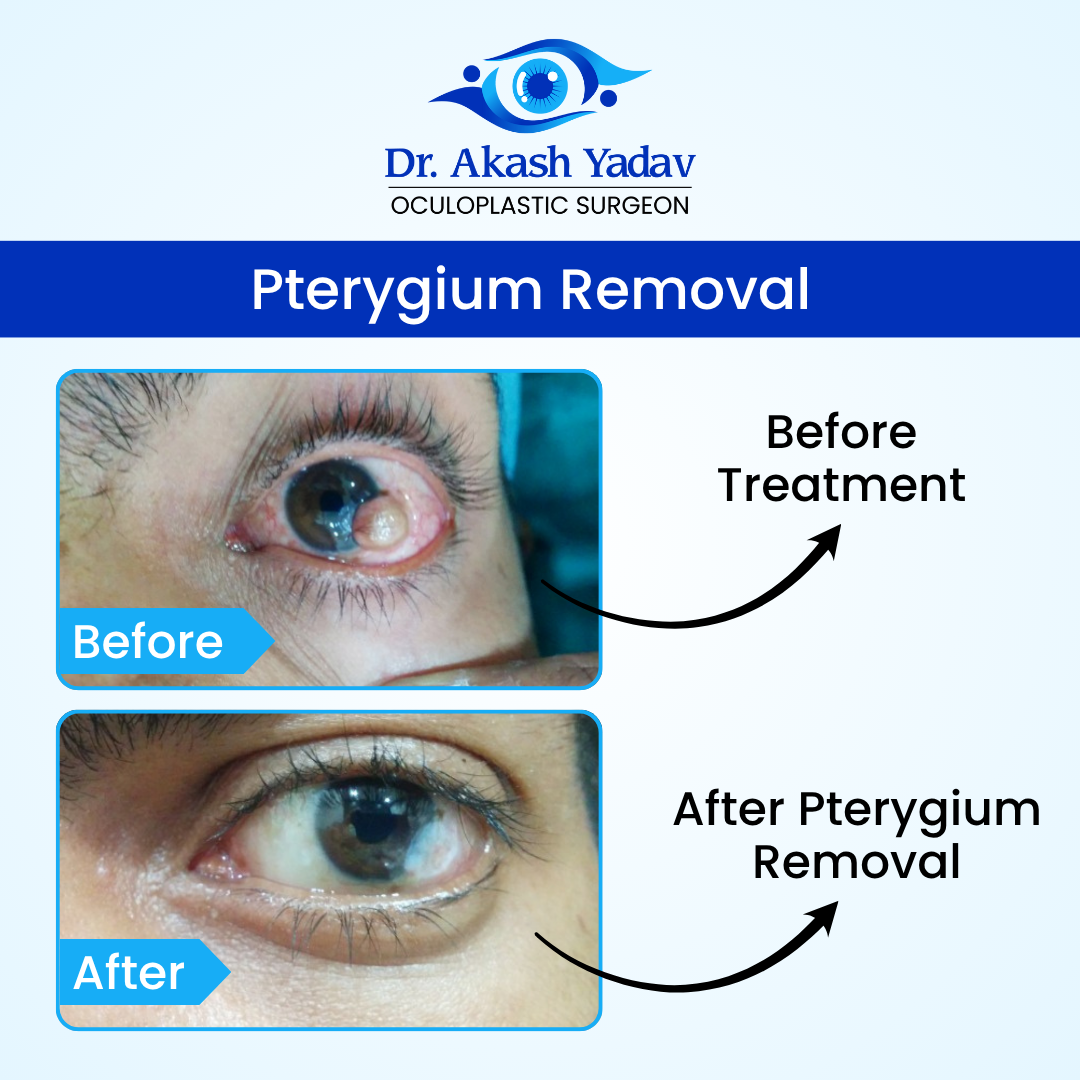
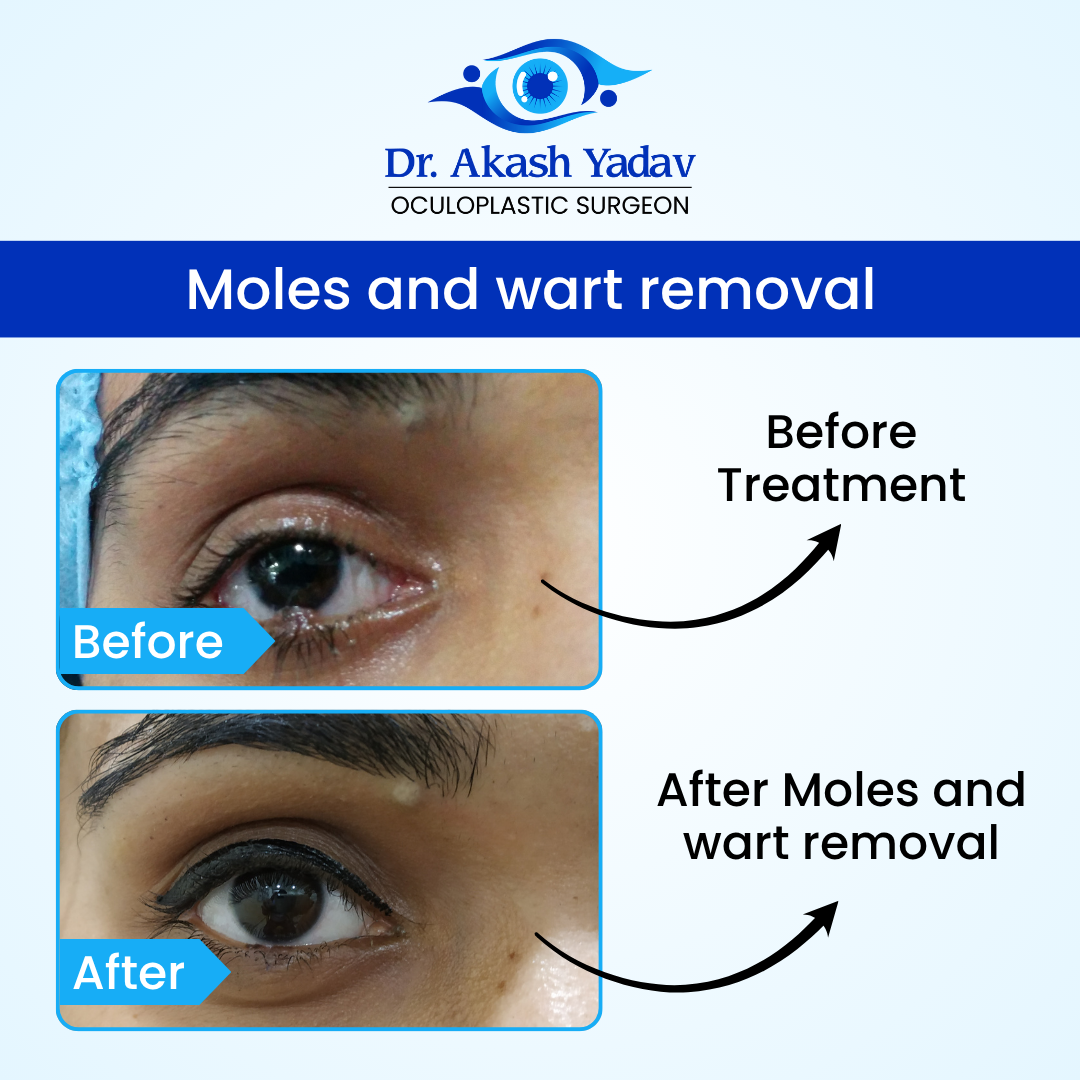
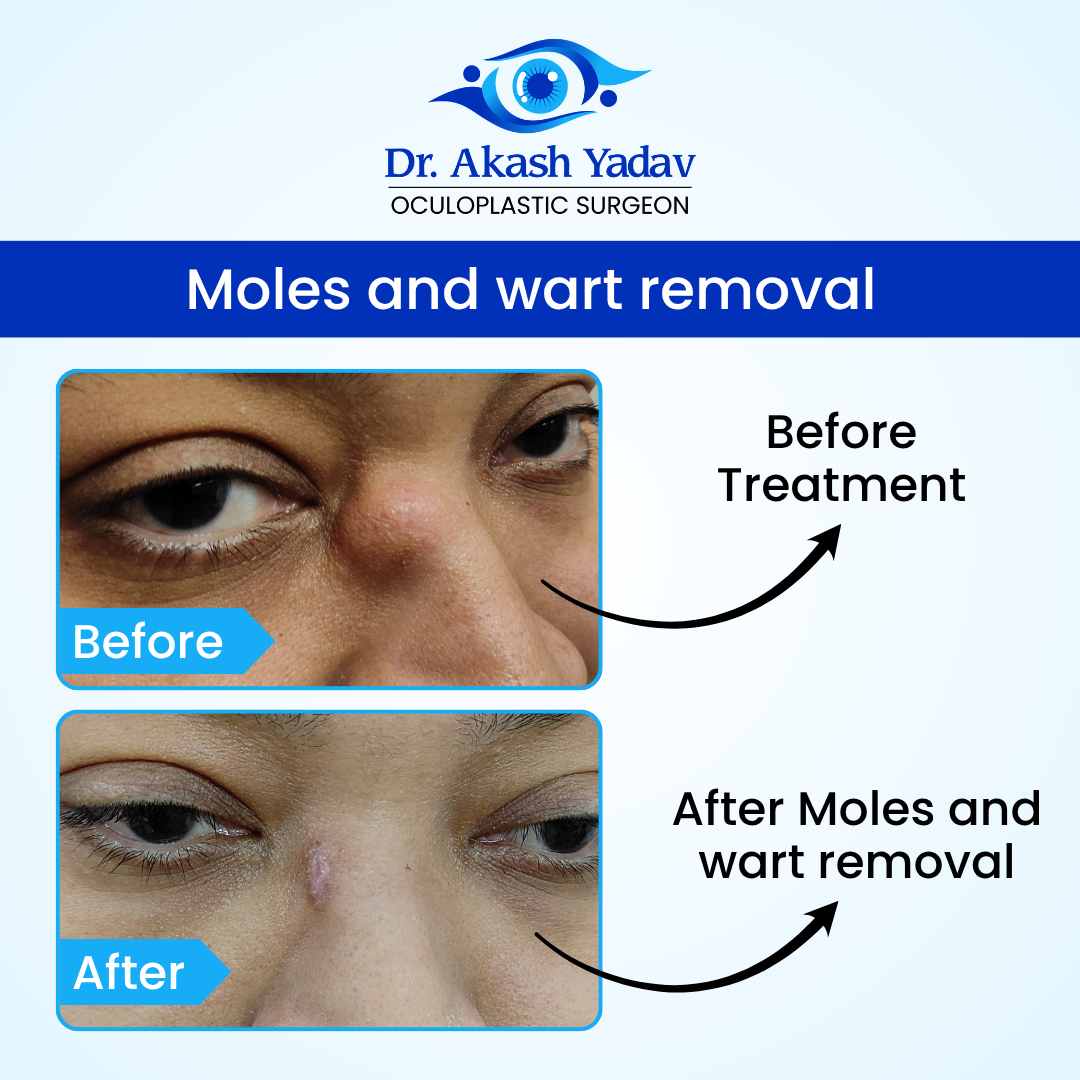
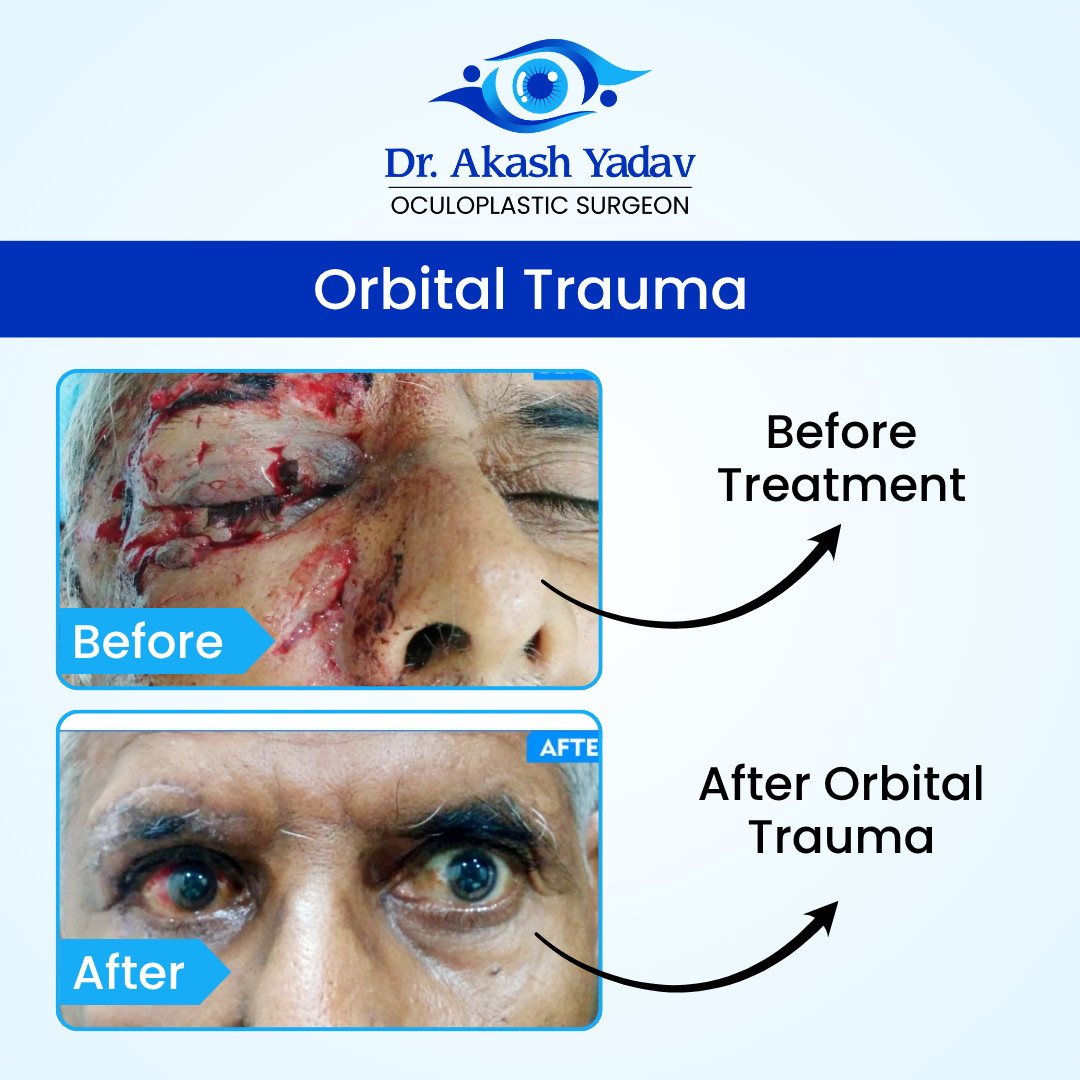
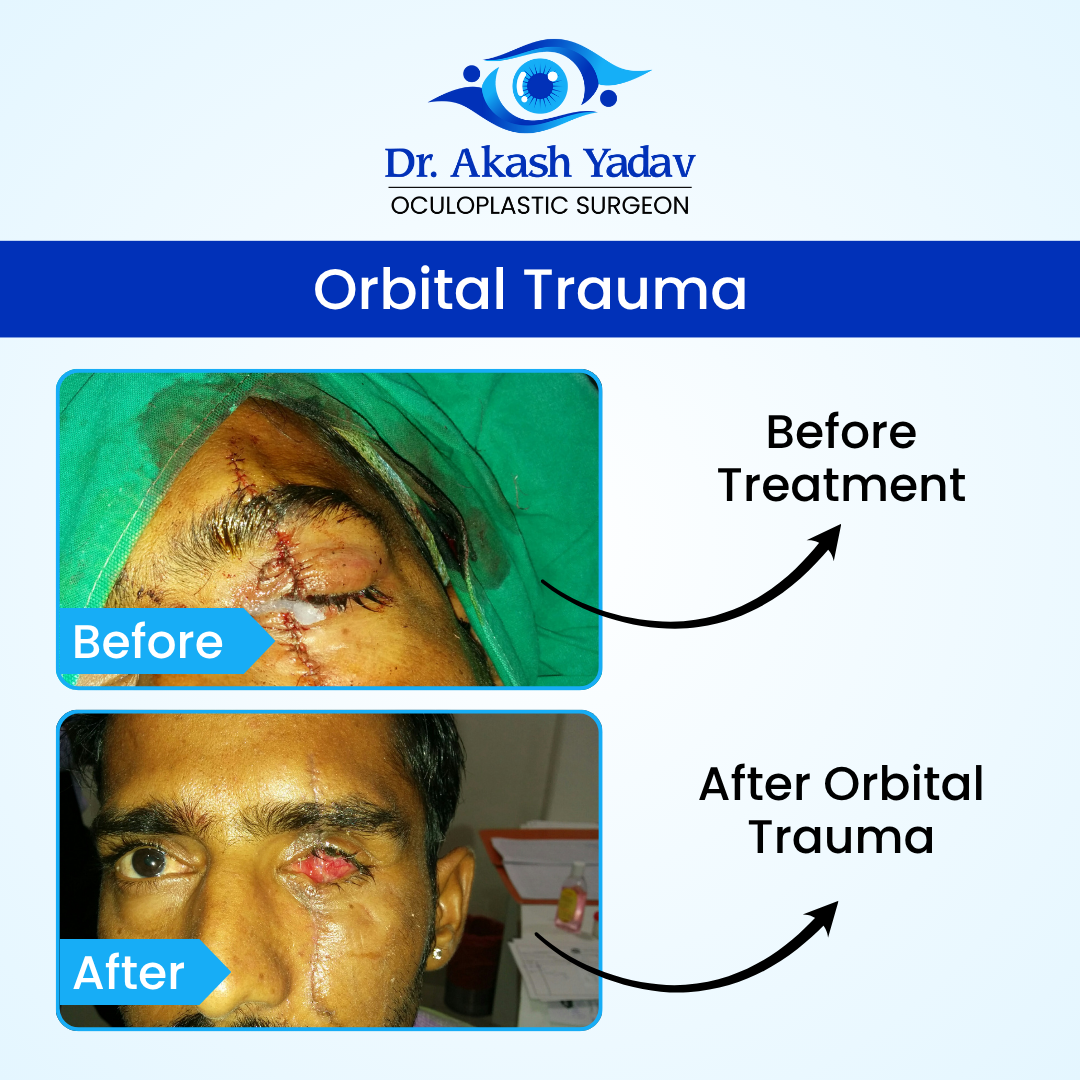
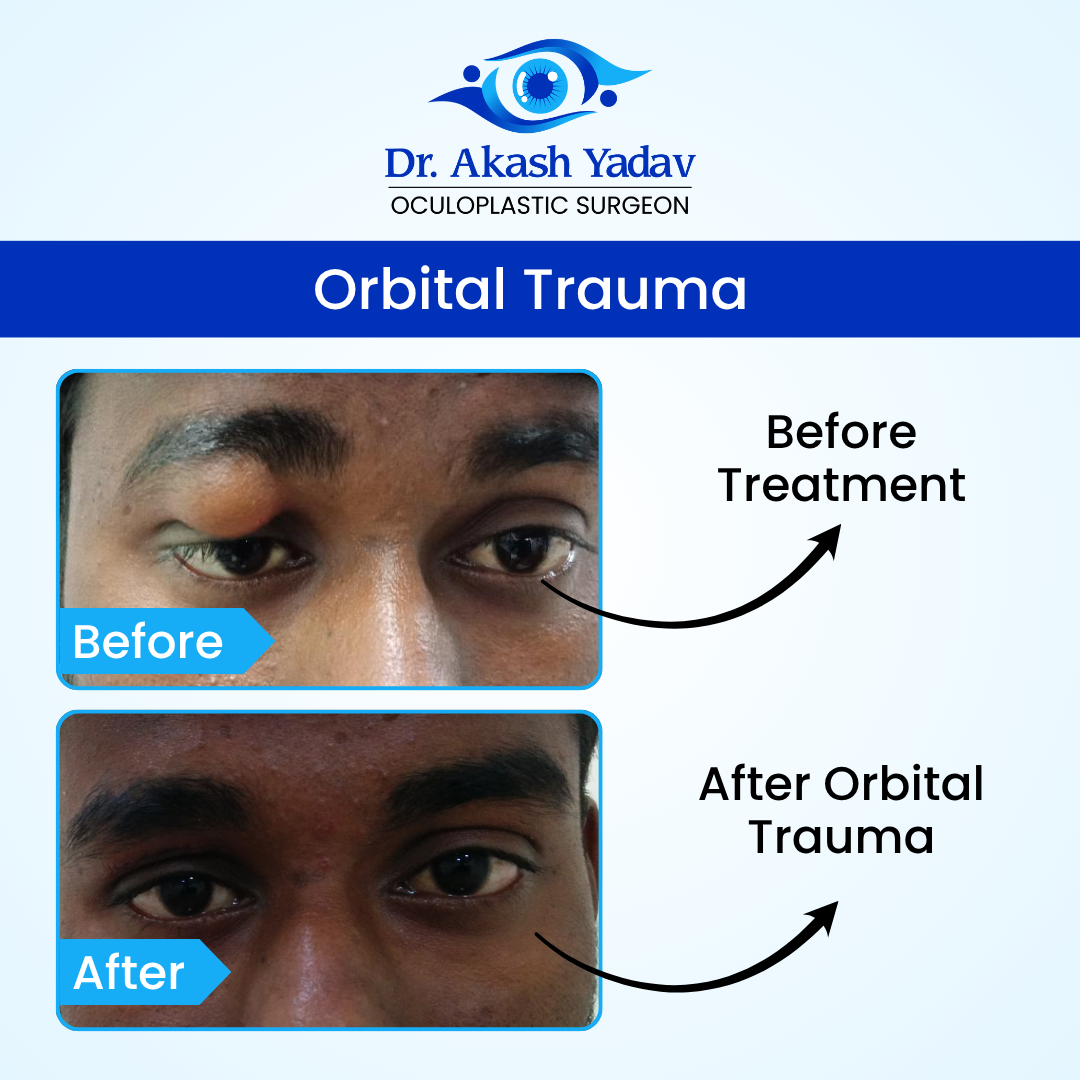
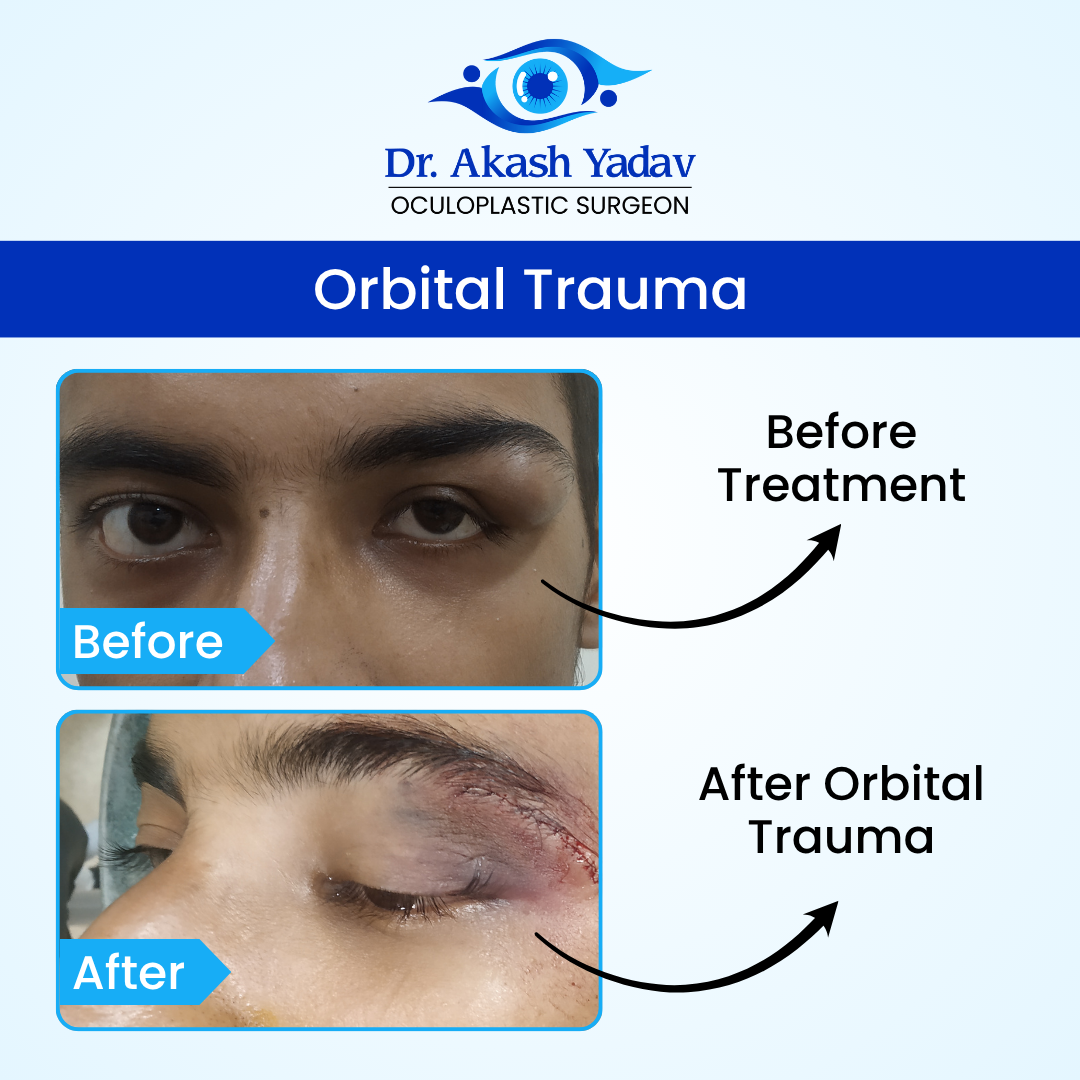
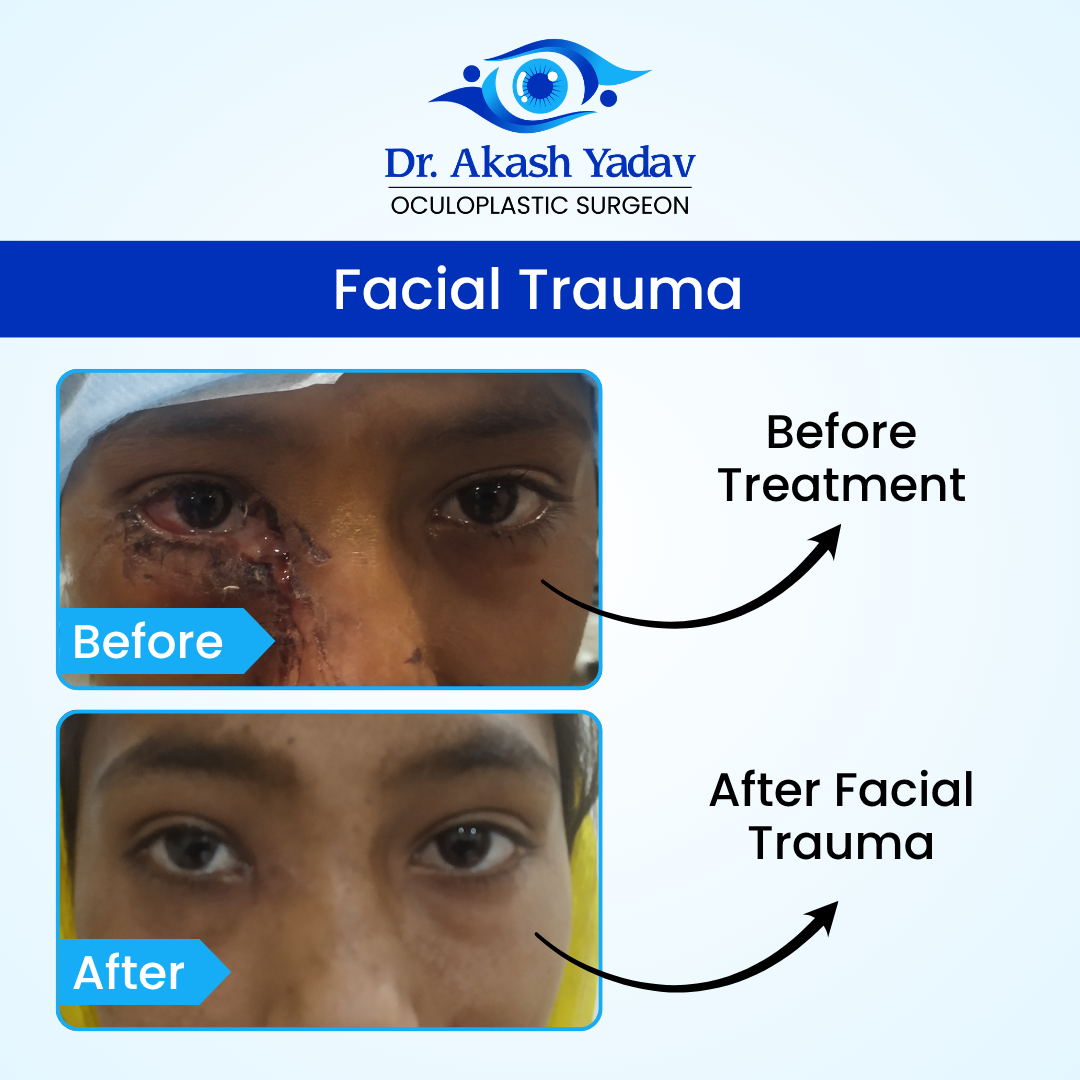
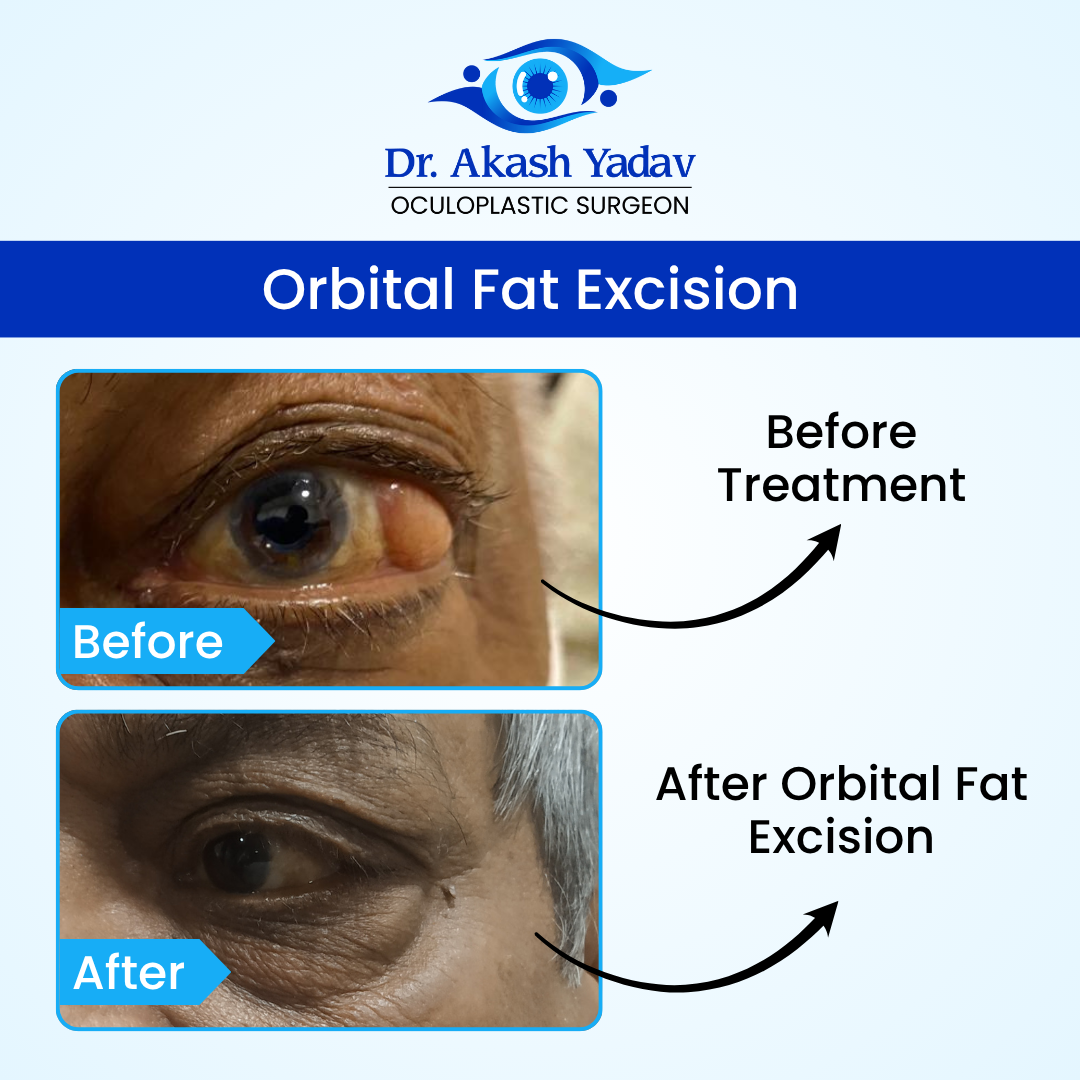
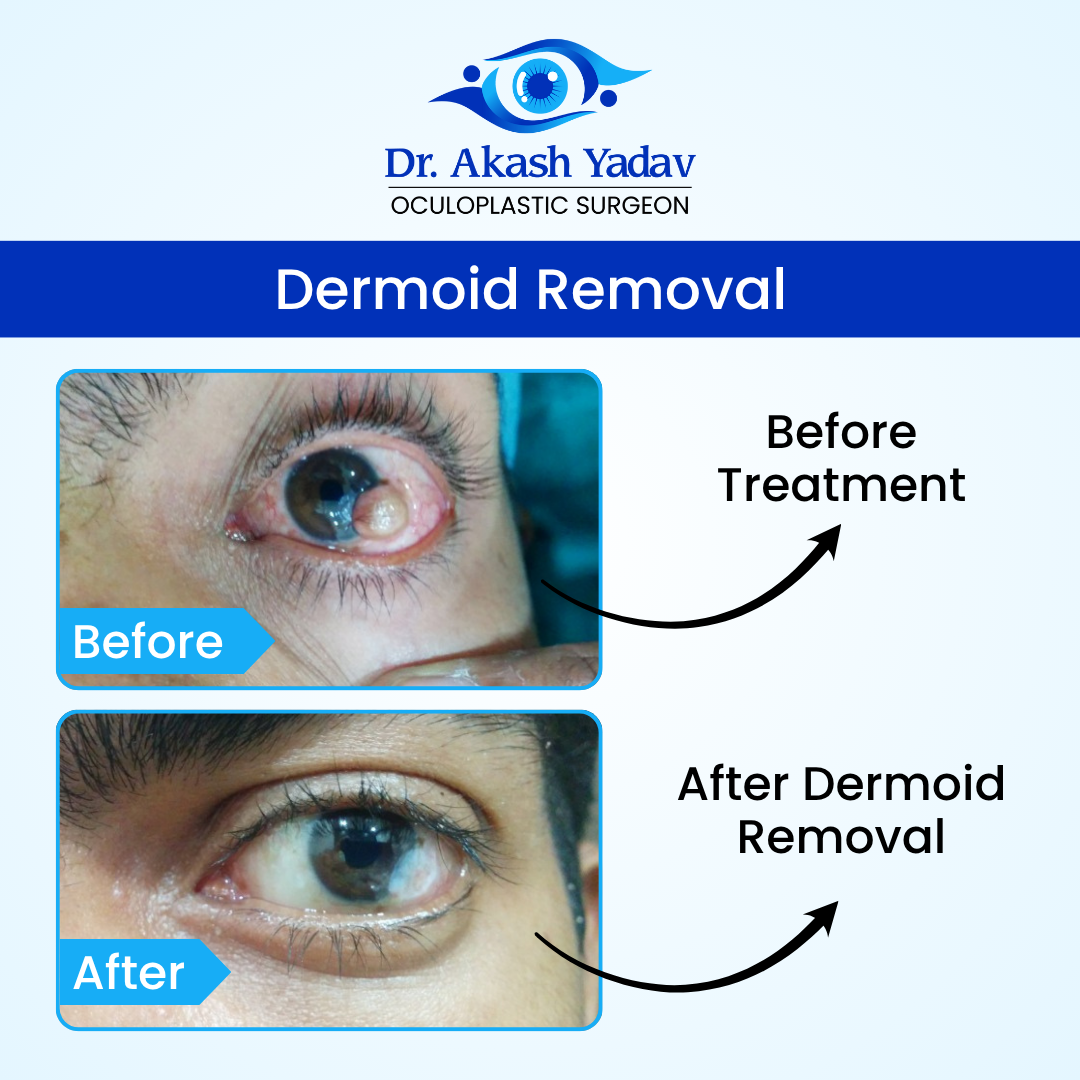
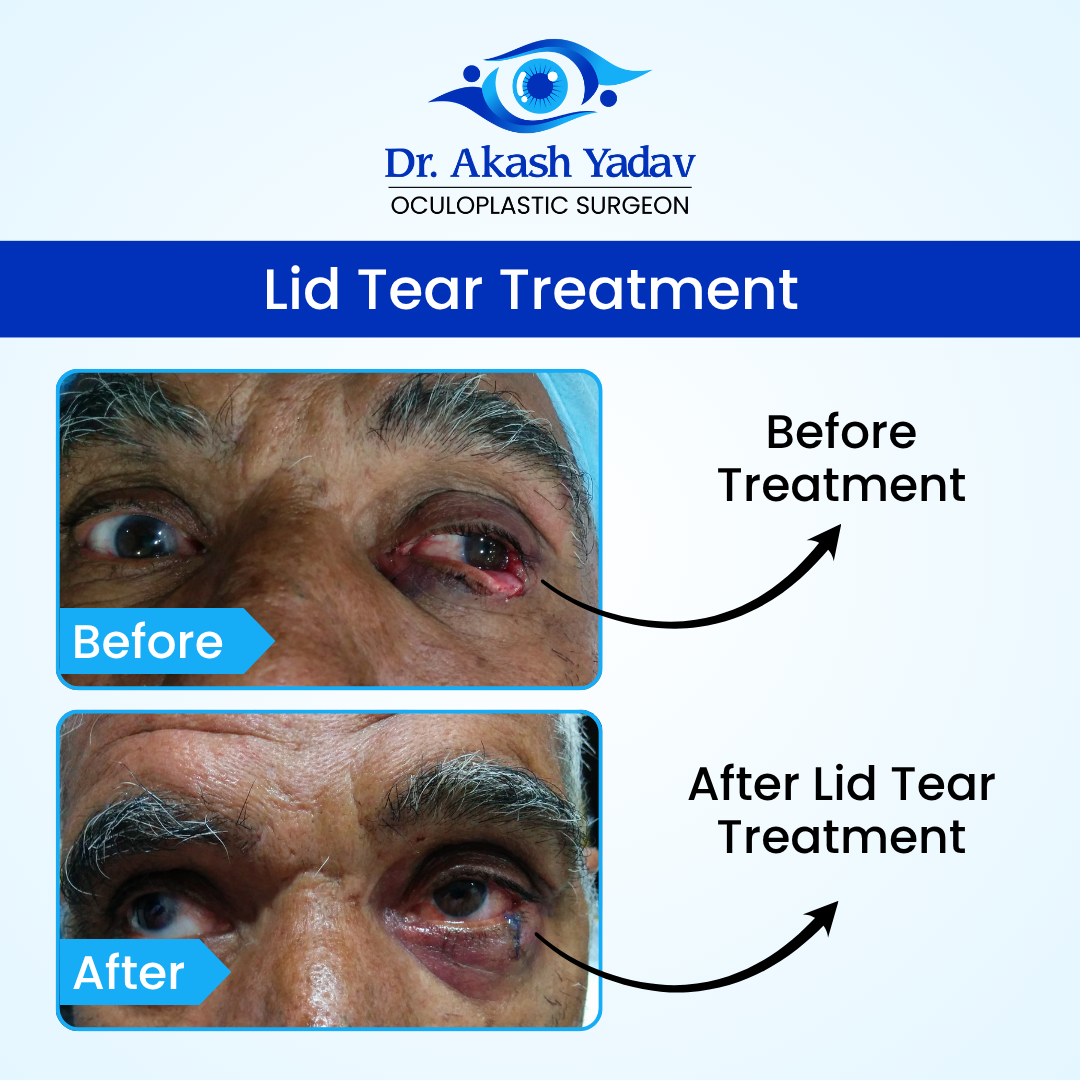
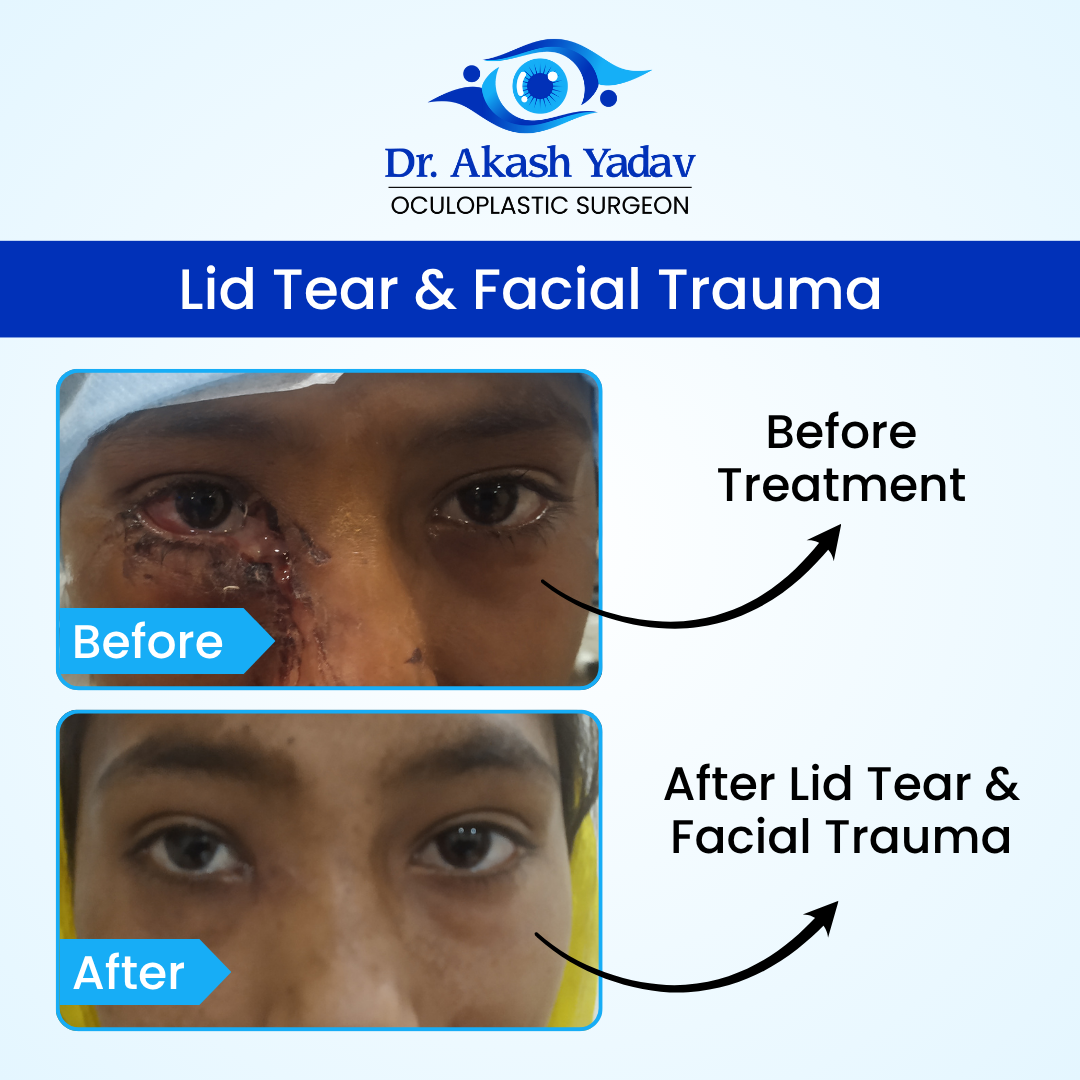
Frequently Asked Questions
Oculoplastic surgery is a specialized type of eye surgery that focuses on the eyelids, tear ducts, eye socket, and the structures around the eyes. It can be done for both medical and cosmetic reasons.
Oculoplastic surgeries are performed by specially trained ophthalmologists known as oculoplastic surgeons, who have expertise in both eye care and plastic surgery around the eyes.
Yes, oculoplastic surgery is generally safe when performed by a qualified oculoplastic surgeon. As with any surgery, there may be some risks, but complications are rare when done properly.
Recovery typically takes about 1 to 2 weeks. Mild swelling or bruising may occur initially but usually resolves quickly. Full healing may take a few months depending on the procedure.
Most oculoplastic surgeries are done using fine incisions along natural skin folds, which helps minimize visible scarring. Over time, scars usually fade significantly.
The surgery is usually performed under local anesthesia with minimal discomfort. Some mild pain, swelling, or tightness may be experienced post-surgery but can be managed with prescribed medications.
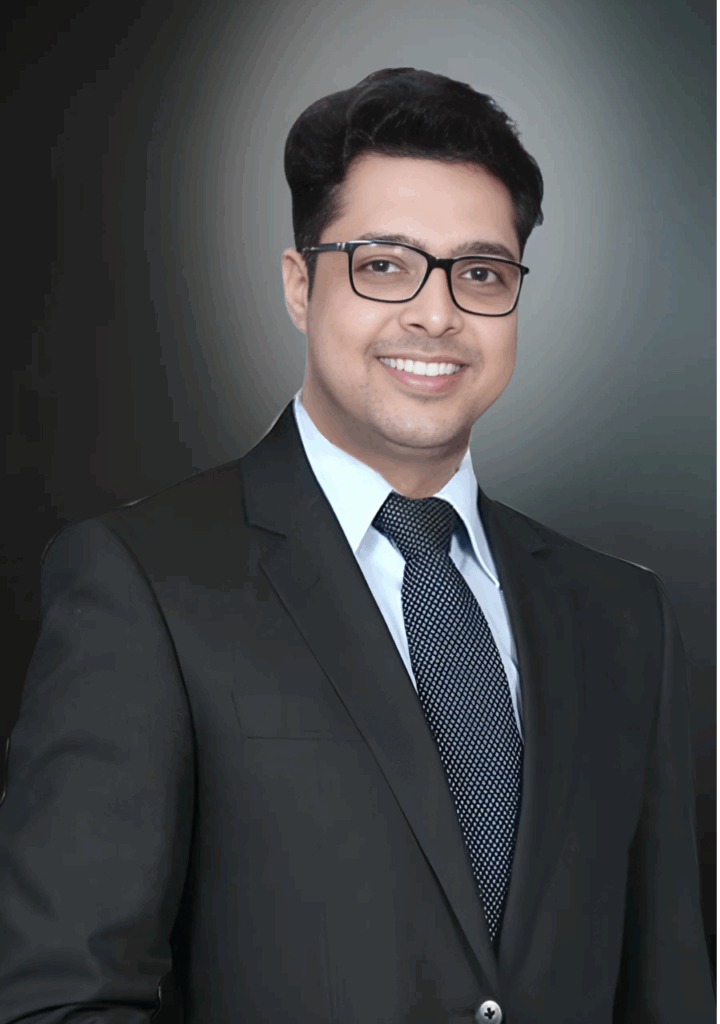
About Dr. Akash Yadav – Top Oculoplastic Surgeon in Pune
Dr. Akash Yadav – Best Oculoplastic Surgeon in Pune, has over 11 years of experience in ophthalmology. He is an expert in Oculoplasty, Ocular Aesthetics, Phaco and Refractive Surgery. He has performed 10,000+ Cataract surgeries and 4,000+ Refractive treatments. He has experience in providing 5,000+ Oculoplastic surgeries, 1,000+ Cosmetic treatments (including Blepharoplasty) and 2,000+ Botox and Fillers
Visit – OPD No.1, ASG Eye Hospital, 2 & 3, Plot No. 557 / 1, Fergusson College Rd, Bhamburda, Cello platina building, Near bank of Maharashtra, Shivajinagar, Pune, Maharashtra 411005
To book an appointment, please contact us at +91 9821136014
ऑक्युलोप्लास्टी सर्जरी म्हणजे काय?
ऑक्युलोप्लास्टी सर्जरी (Oculoplasty Surgery) ही डोळ्यांभोवतीच्या भागांची शस्त्रक्रिया आहे, ज्यामध्ये डोळ्यांच्या पापण्या (Eyelids), डोळ्यांच्या सॉकेट्स (Eye Sockets), अश्रू ग्रंथी (Tear Ducts), आणि चेहऱ्याच्या डोळ्याभोवतीच्या रचनांची शस्त्रक्रिया केली जाते.
ही सर्जरी सौंदर्यवर्धन (Cosmetic) आणि वैद्यकीय गरजेनुसार (Reconstructive) दोन्ही कारणांसाठी केली जाते.
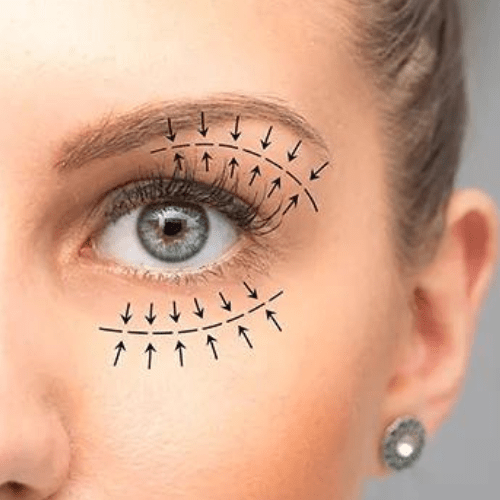
ऑक्युलोप्लास्टिक सर्जरी कधी करावी लागते?
ऑक्युलोप्लास्टिक सर्जरीची गरज खालील परिस्थितींमध्ये भासते:
- पापण्यांची झुलती त्वचा (Droopy Eyelids / Ptosis)
- डोळ्यांच्या भोवती गाठी किंवा गाठीच्या शंका (Tumors or Cysts)
- डोळ्यांवर सूज (Orbital Inflammation)
- डोळे आत ओढले जाणे किंवा बाहेर सरकणे (Enophthalmos / Proptosis)
- डोळ्यांच्या अश्रू नलिकेतील अडथळा (Tear Duct Blockage)
- अपघात किंवा जखमेमुळे डोळ्यांच्या भागाचे नुकसान
- डोळ्यांच्या सौंदर्यात्मक सुधारणा (Cosmetic Eye Enhancement)
ऑक्युलोप्लास्टिक सर्जरीचे प्रकार
- Blepharoplasty – पापण्यांवरील अतिरिक्त त्वचा काढून डोळ्यांना नैसर्गिक आकार देणे.
- Ptosis Surgery – झुलती पापणी वर उचलणे.
- Tear Duct Surgery – अश्रू नलिका बंद झाल्यास नवे मार्ग बनवणे.
- Orbital Surgery – डोळ्यांच्या सॉकेटमधील गाठ, फ्रॅक्चर किंवा सूज यावर उपचार करणे.
- Eye Tumor Removal – डोळ्यांच्या भागातील गाठ किंवा कॅन्सर काढून टाकणे.
- Cosmetic Eye Surgery – डोळ्यांचे सौंदर्य वाढवण्यासाठी केलेली सर्जरी.
ऑक्युलोप्लास्टिक सर्जन काय करतात?
ऑक्युलोप्लास्टिक सर्जन्स हे नेत्ररोग तज्ज्ञ असतात, ज्यांना डोळ्यांभोवतीच्या प्लास्टिक सर्जरीचे विशेष प्रशिक्षण दिलेले असते. ते खालील समस्यांवर उपचार करतात:
- झुकलेल्या पापण्या (Ptosis) – दृष्टी सुधारण्यासाठी आणि चेहऱ्याची रचना सुधारण्यासाठी.
- पापण्यांची अयोग्य स्थिती (Entropion/Ectropion) – पापण्या आत किंवा बाहेर वळल्यास उपचार.
- पापण्यांवरील गाठी आणि कर्करोग – गाठी काढून टाकून पापण्यांची पुनर्निर्मिती.
- अश्रू नलिकेचे अडथळे – अश्रू येणे किंवा संसर्ग रोखण्यासाठी.
- थायरॉईड डोळ्याचा आजार (Graves’ disease) – डोळे बाहेर येणे किंवा सूज कमी करणे.
- चेहऱ्यावरील वयोमानाचे चिन्हे (डोळ्याखाली पिशव्या, झुरी) – ब्लेफेरोप्लास्टी सारख्या कॉस्मेटिक प्रक्रिया.
- डोळ्यांभोवतीच्या इजा आणि फ्रॅक्चर – पापण्या किंवा डोळ्याच्या खोलीच्या इजांची दुरुस्ती.
ऑक्युलोप्लास्टिक सर्जरी कोणाला आवश्यक आहे?
तुम्हाला या सर्जरीची गरज पडू शकते, जर तुम्हाला:
– कार्यात्मक समस्या (पापण्या दृष्टी अडवणे, पापण्या आत/बाहेर वळणे).
– अतिरिक्त अश्रू किंवा डोळ्यांचे संसर्ग (अडकलेल्या अश्रू नलिका मुळे).
– थायरॉईडमुळे डोळे बाहेर येणे.
– पापण्यांवर गाठी किंवा कर्करोग.
– सौंदर्याच्या समस्या (डोळ्याखाली पिशव्या, पापण्या झुकणे, झुरी).
सर्जरीपूर्वी, दरम्यान आणि नंतर काय अपेक्षित आहे?
सर्जरीपूर्वी
– ऑक्युलोप्लास्टिक सर्जनशी सल्लामसलत
– वैद्यकीय तपासणी (डोळ्याची तपासणी, इमेजिंग आवश्यक असल्यास).
सर्जरी दरम्यान
– बहुतेक प्रक्रिया आउट पेशंट असतात (रात्रभर राहण्याची गरज नसते).
– स्थानिक किंवा संपूर्ण भूल वापरली जाते.
सर्जरी नंतर
– १-२ आठवड्यांसाठी हलकी सूज आणि निळेपणा.
– बर्फाचे सेक आणि मलम लावणे उपयुक्त.
– काही आठवडे जोरदार व्यायाम टाळा.
– अंतिम परिणाम काही आठवडे ते महिन्यांमध्ये दिसू लागतात.
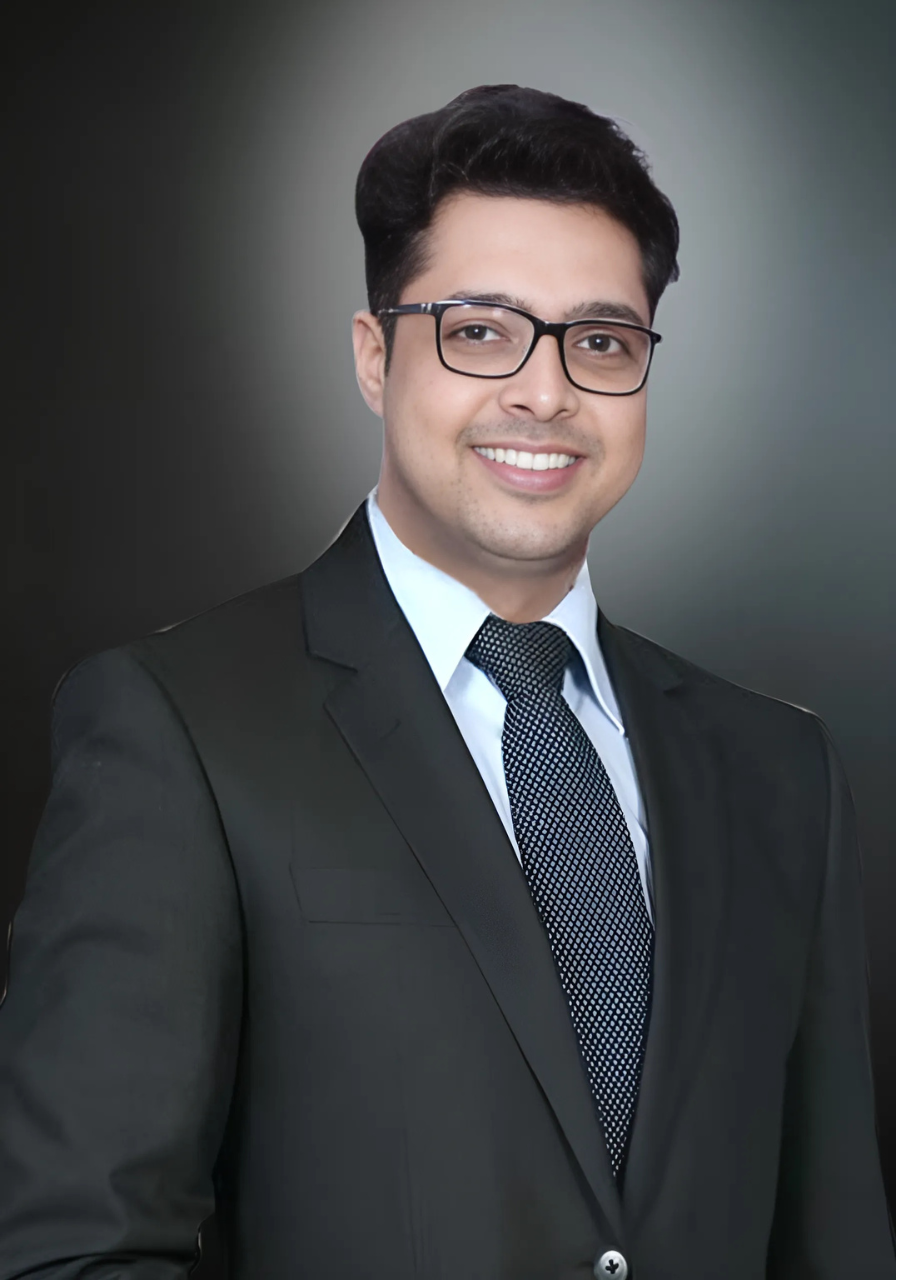
डॉ. आकाश यादव – पुण्यातील सर्वोत्तम ऑक्युलोप्लास्टिक सर्जन
डॉ. आकाश यादव – पुण्यातील सर्वोत्कृष्ट ऑक्युलोप्लास्टिक सर्जन, यांना नेत्ररोग क्षेत्रात 11 हून अधिक वर्षांचा अनुभव आहे. ते ऑक्युलोप्लास्टी, ऑक्युलर एस्थेटिक्स, फेको आणि रिफ्रॅक्टिव्ह सर्जरीमध्ये तज्ज्ञ आहेत. त्यांनी आतापर्यंत 10,000+ मोतीबिंदू शस्त्रक्रिया आणि 4,000+ रिफ्रॅक्टिव्ह उपचार यशस्वीपणे केले आहेत. तसेच त्यांनी 5,000+ ऑक्युलोप्लास्टिक सर्जरी, 1,000+ कॉस्मेटिक उपचार (ब्लेफेरोप्लास्टी सहित) आणि 2,000+ बोटॉक्स आणि फिलर उपचार यशस्वीपणे केले आहेत.
Visit – OPD No.1, ASG Eye Hospital, 2 & 3, Plot No. 557 / 1, Fergusson College Rd, Bhamburda, Cello platina building, Near bank of Maharashtra, Shivajinagar, Pune, Maharashtra 411005
To Book An Appointment Contact at this number –+91 9821136014
Frequently Asked Questions
ऑक्युलोप्लास्टिक सर्जरी ही डोळ्यांभोवतीच्या संरचनांवर (जसे की पापण्या, अश्रू नलिका, डोळ्याच्या सॉकेटचा भाग) केली जाणारी विशेष शस्त्रक्रिया आहे. या सर्जरीद्वारे डोळ्यांची कार्यक्षमता, रचना आणि सौंदर्य सुधारले जाते.
डोळ्यातील पिशवी काढण्याची सर्जरी सामान्यतः वेदनारहित असते. सर्जरी दरम्यान स्थानिक भूल दिली जाते त्यामुळे रुग्णाला वेदना जाणवत नाहीत. सर्जरीनंतर थोडीशी सूज किंवा अस्वस्थता काही दिवस राहू शकते, परंतु ती औषधांमुळे कमी होते.
पापण्यांच्या शस्त्रक्रियेची गरज त्यांना असते ज्यांची पापणी सैल झाली आहे, डोळ्यांवर पापणीचा भार येतो आहे, डोळ्यांच्या भोवती पिशव्या तयार झाल्या आहेत, किंवा सौंदर्यदृष्ट्या पापण्यांचा आकार बदलण्याची गरज आहे. कधी कधी ही सर्जरी वैद्यकीय गरजेने केली जाते, जसे की दृष्टी अडथळा येत असल्यास.
पापण्यांच्या शस्त्रक्रियेनंतर सामान्यतः 2 ते 3 दिवस थोडीशी सूज, अस्वस्थता किंवा सौम्य वेदना जाणवू शकतात. डॉक्टरांनी दिलेल्या औषधांमुळे ही वेदना कमी होते. बहुतांश रुग्ण 1 ते 2 आठवड्यांत पूर्ण बरे होतात.

